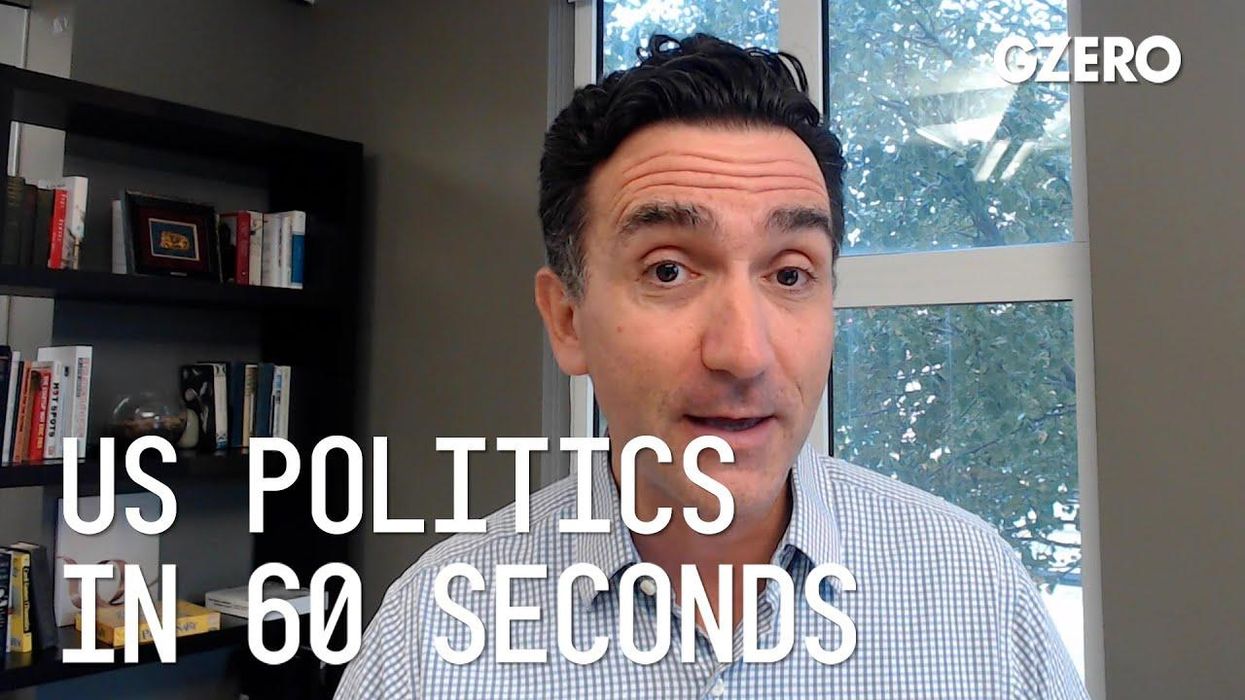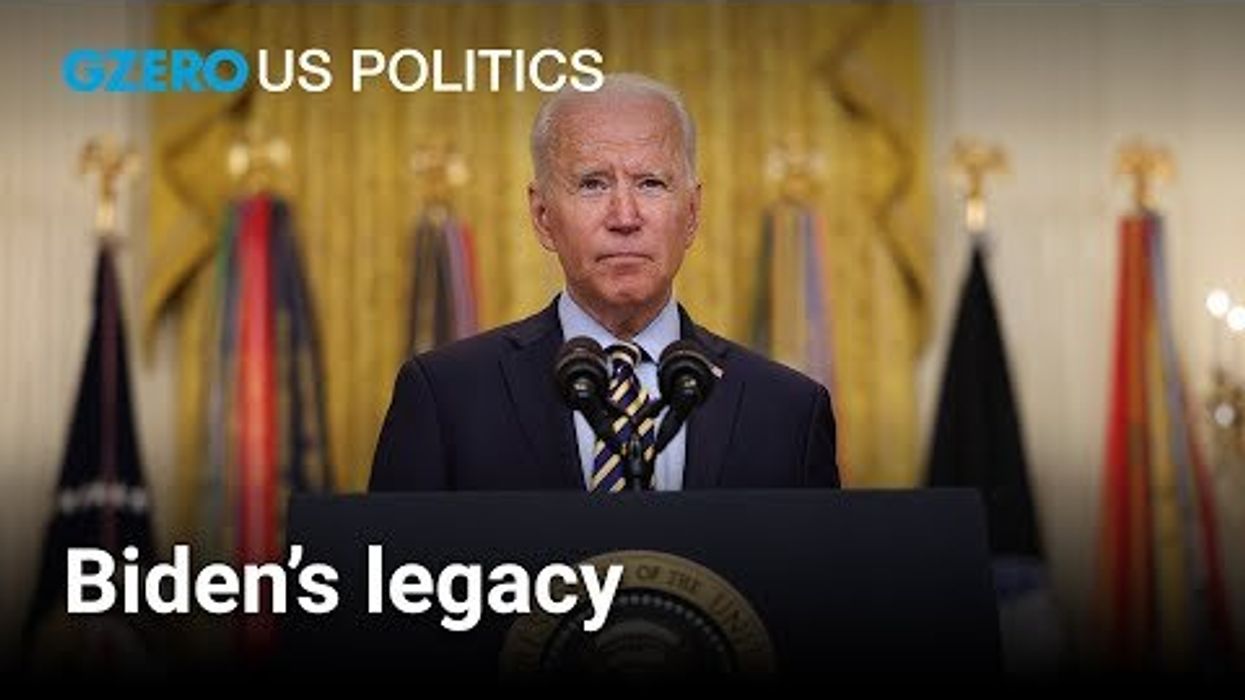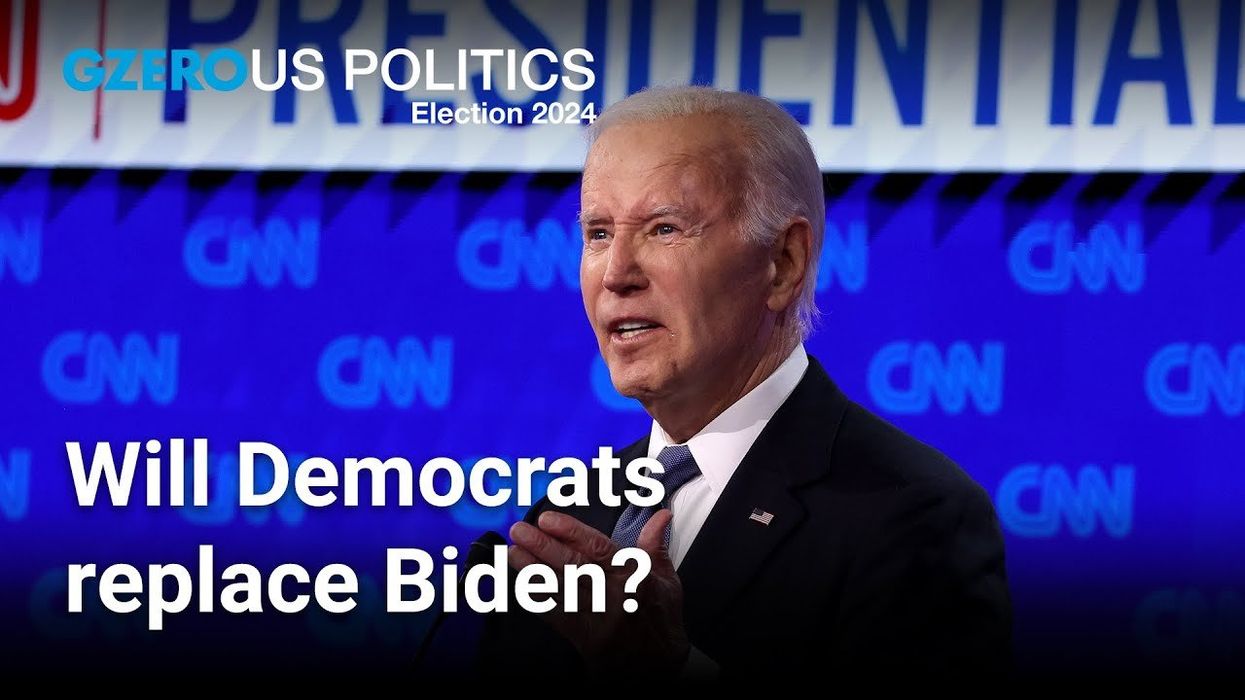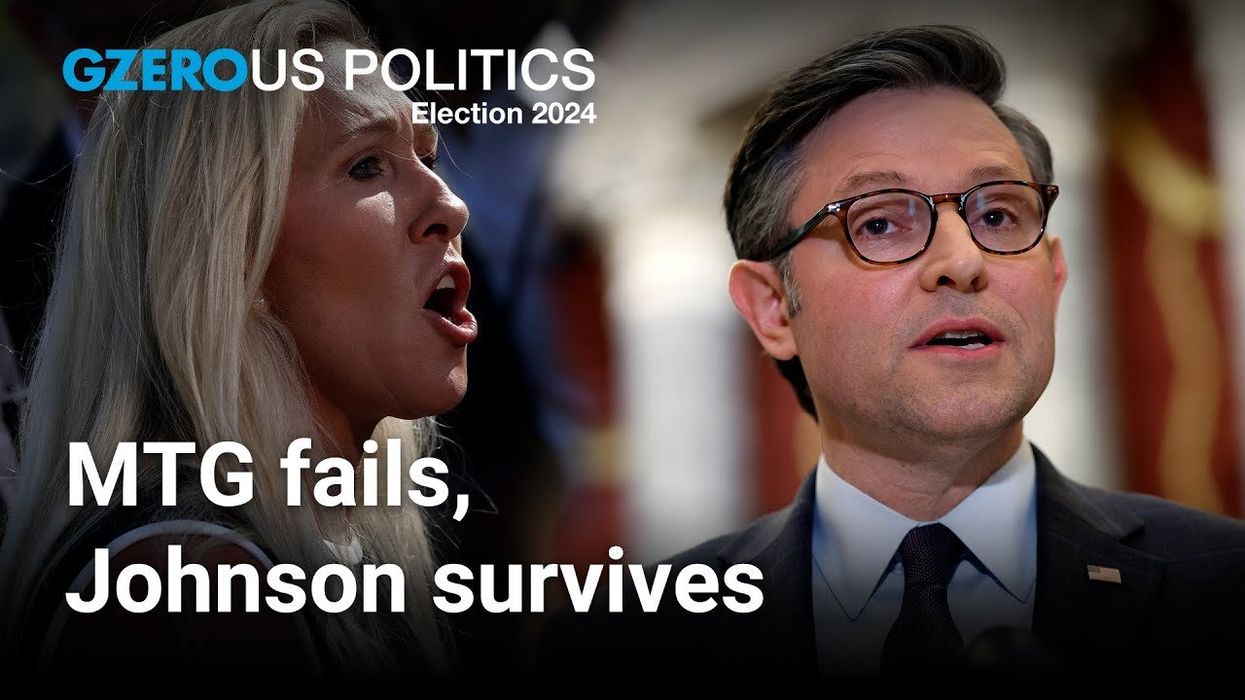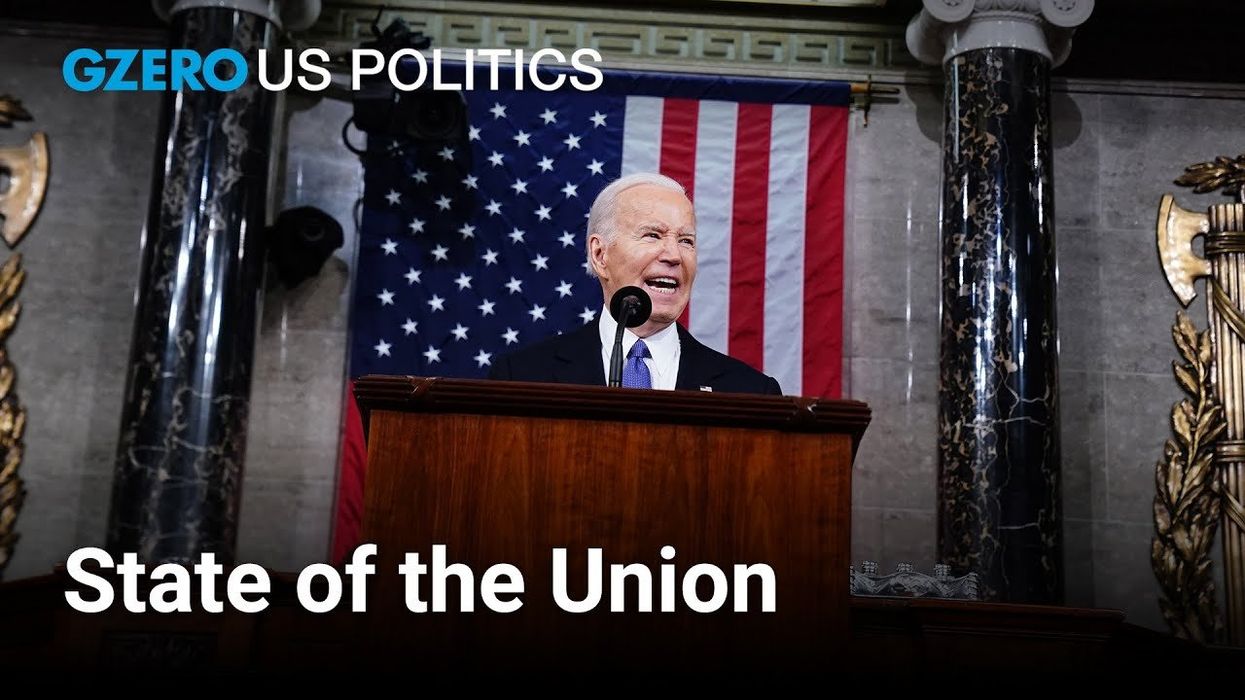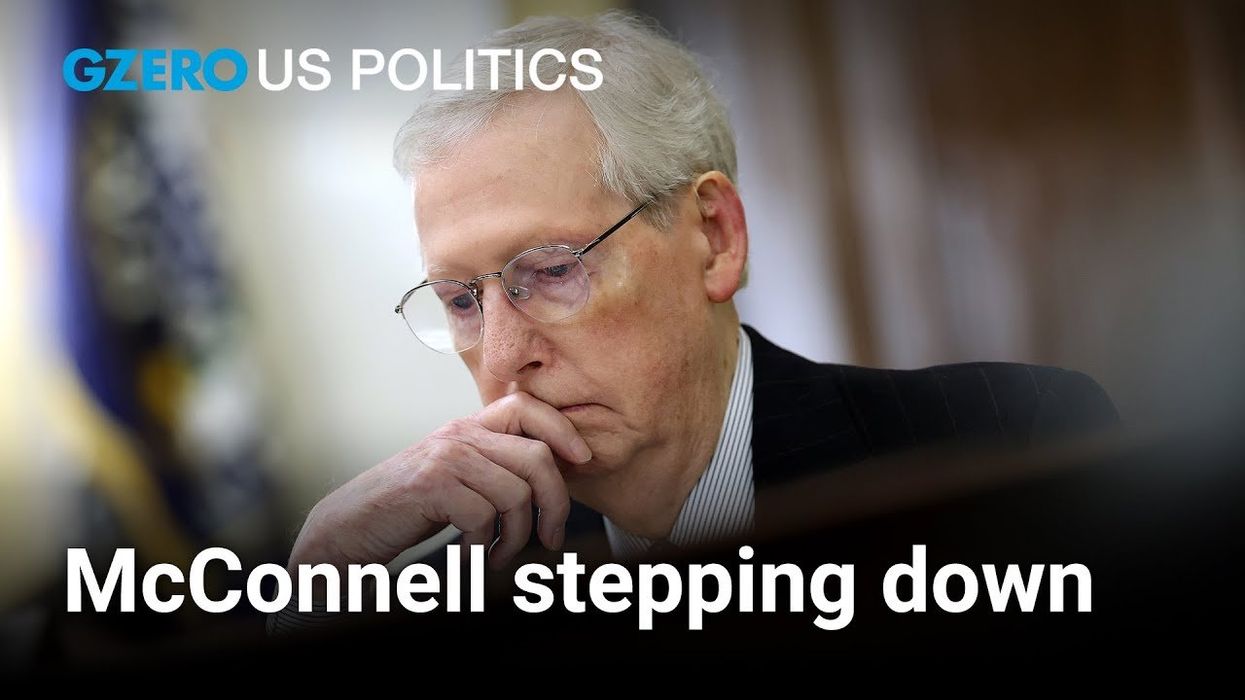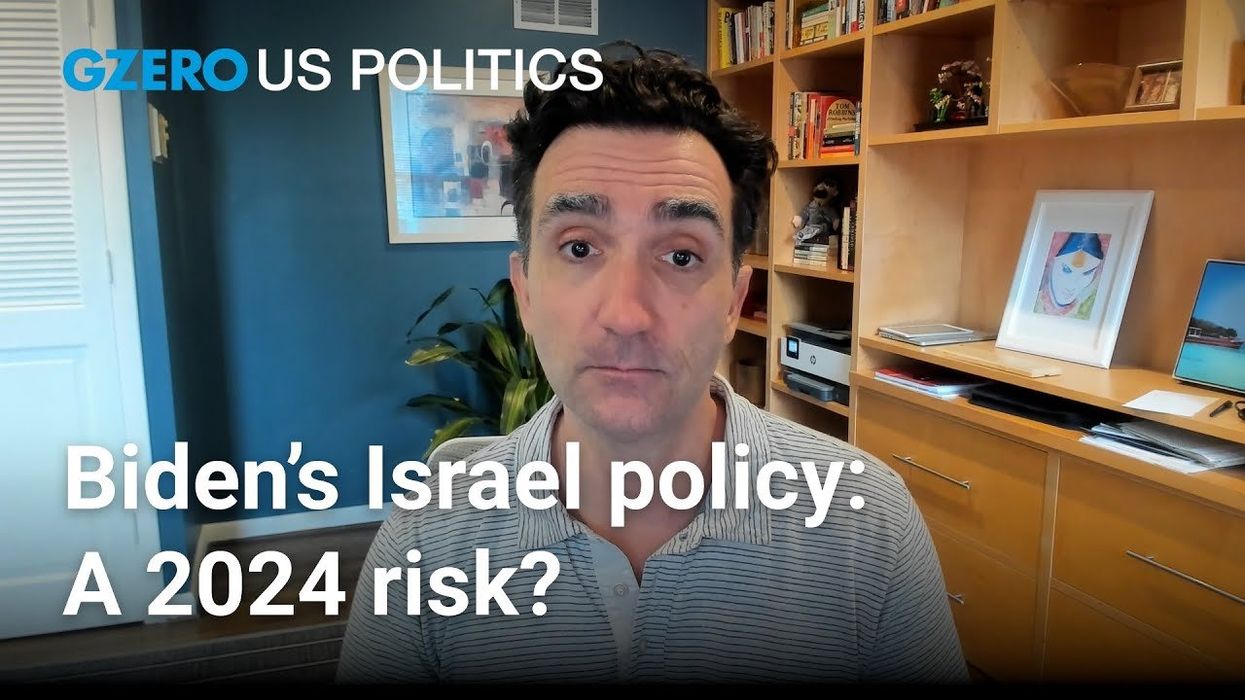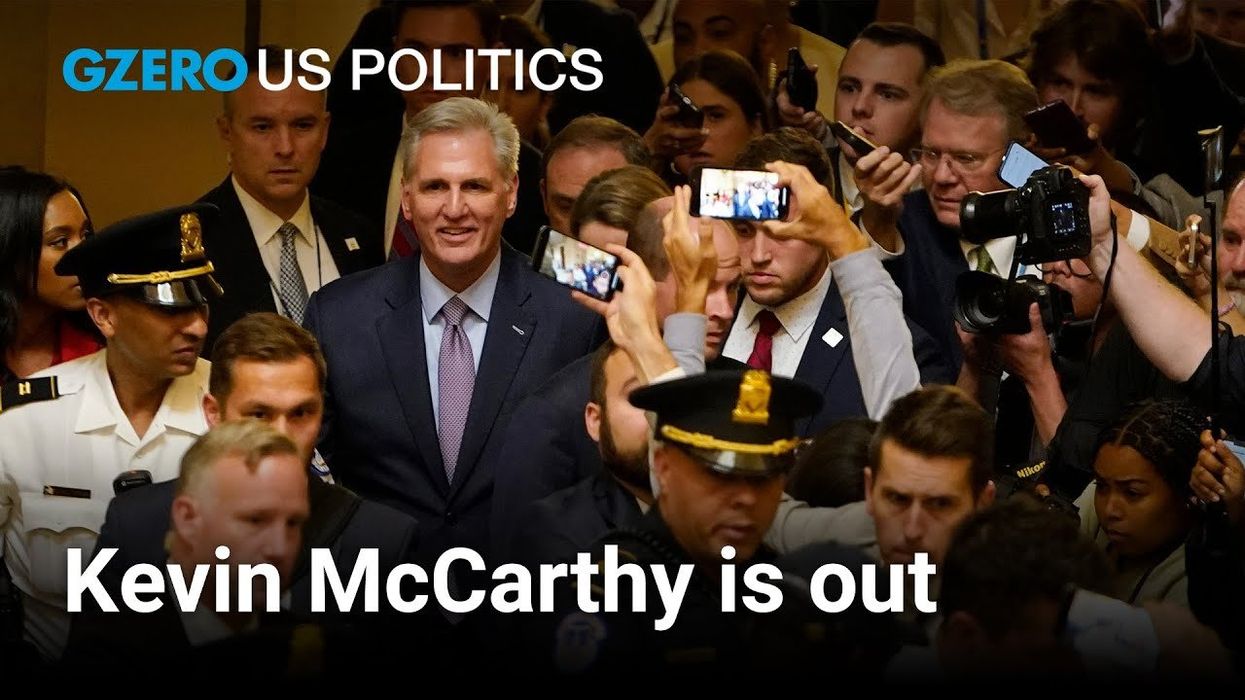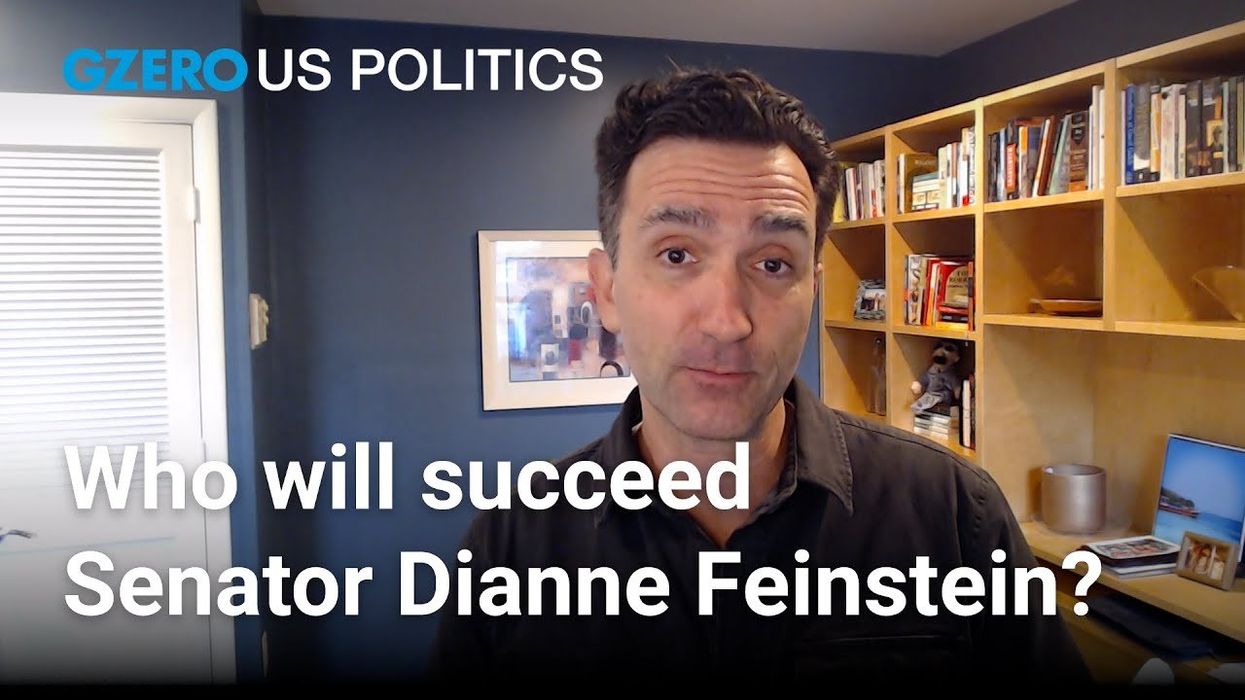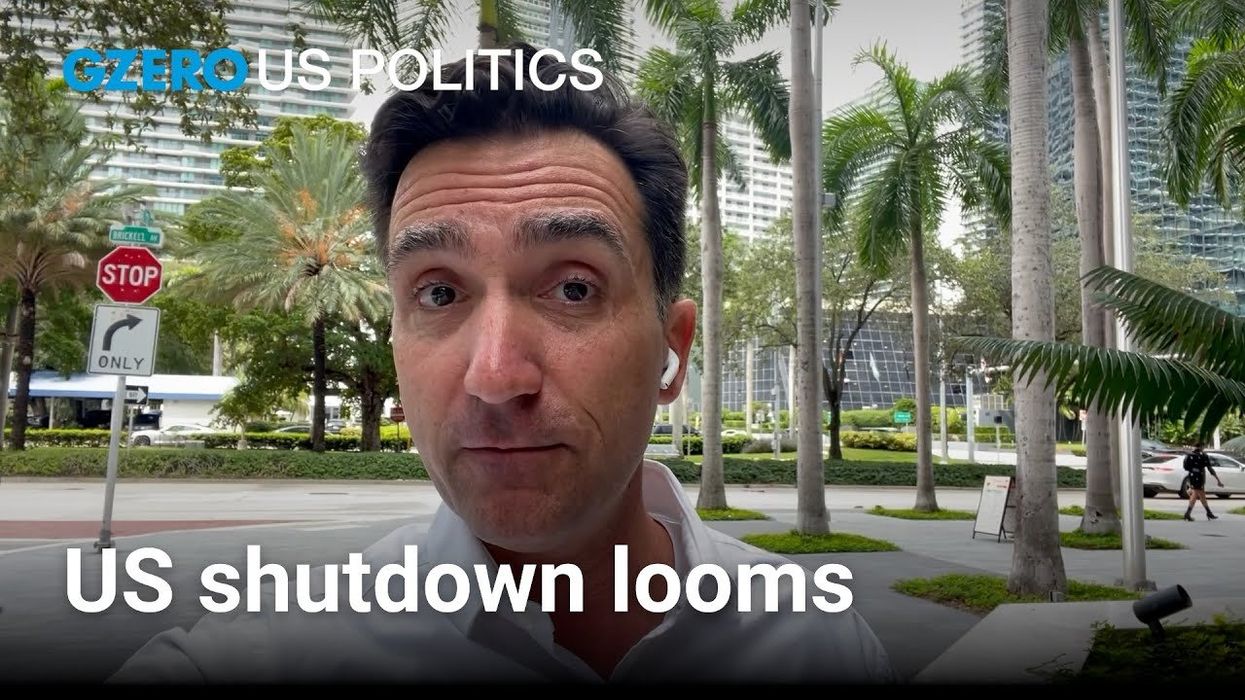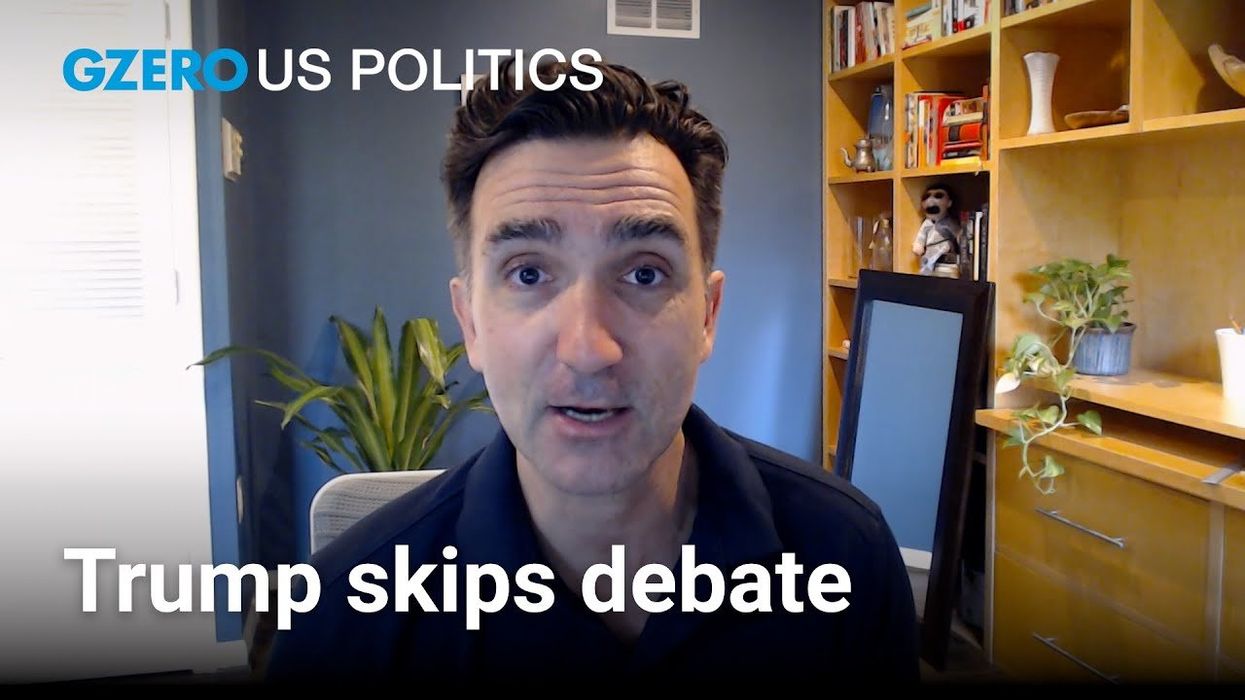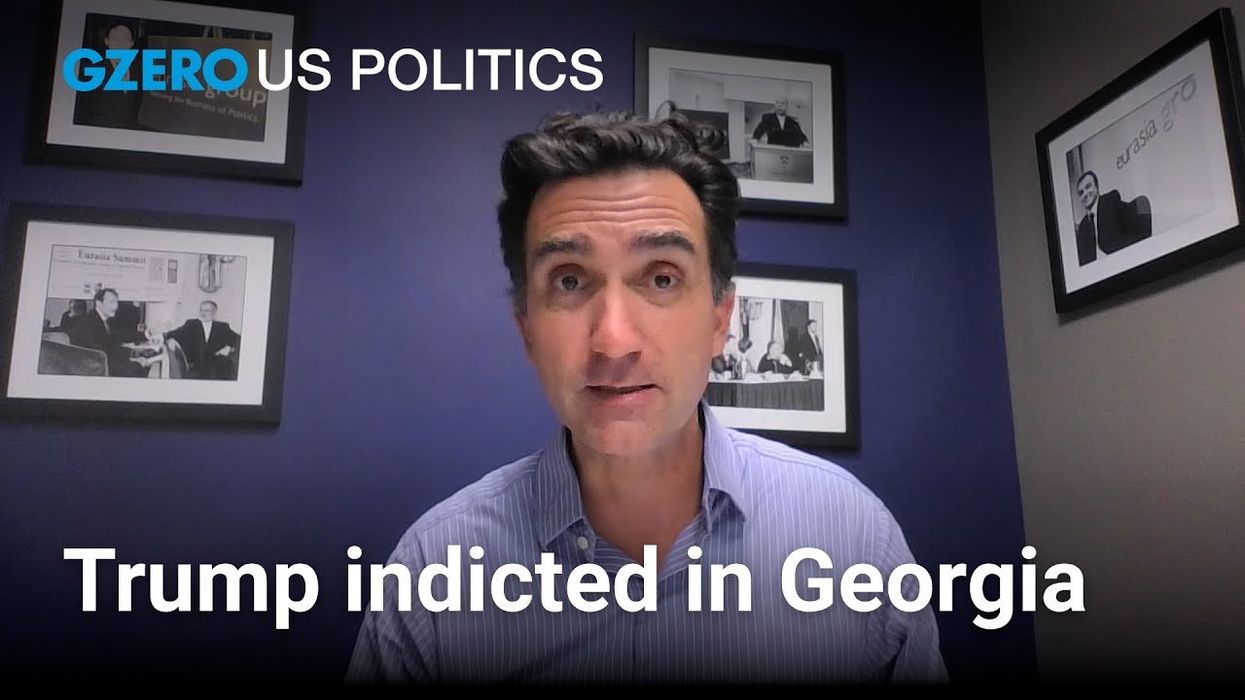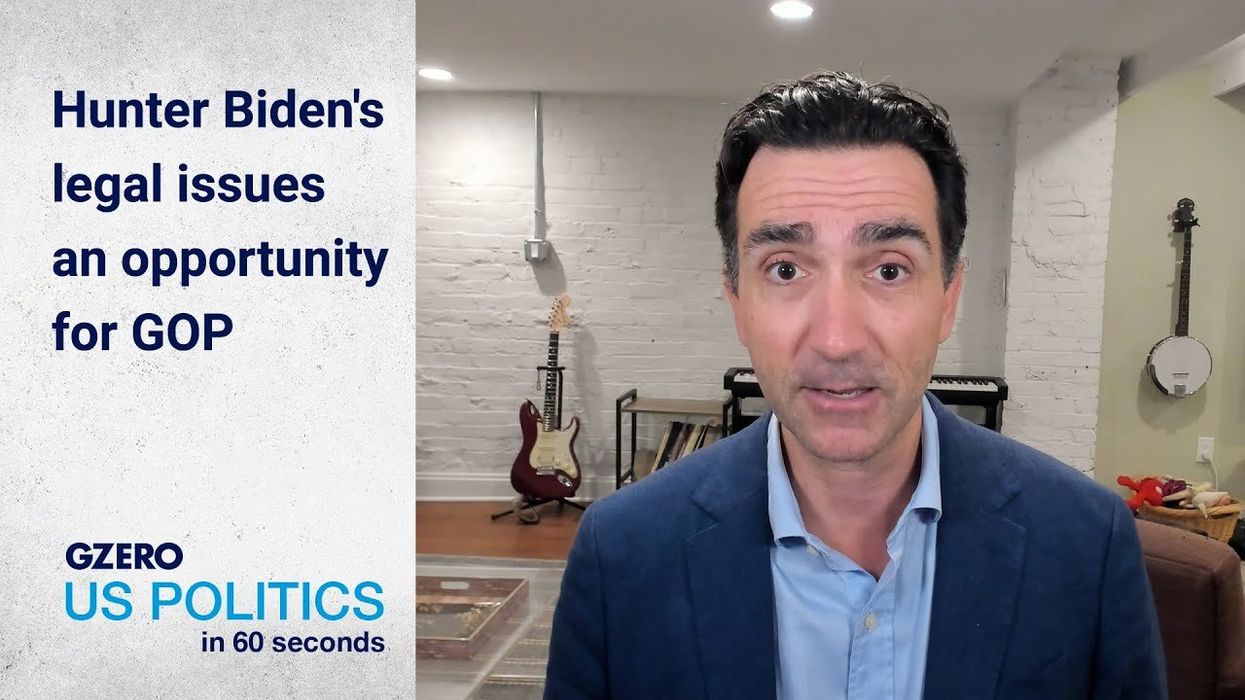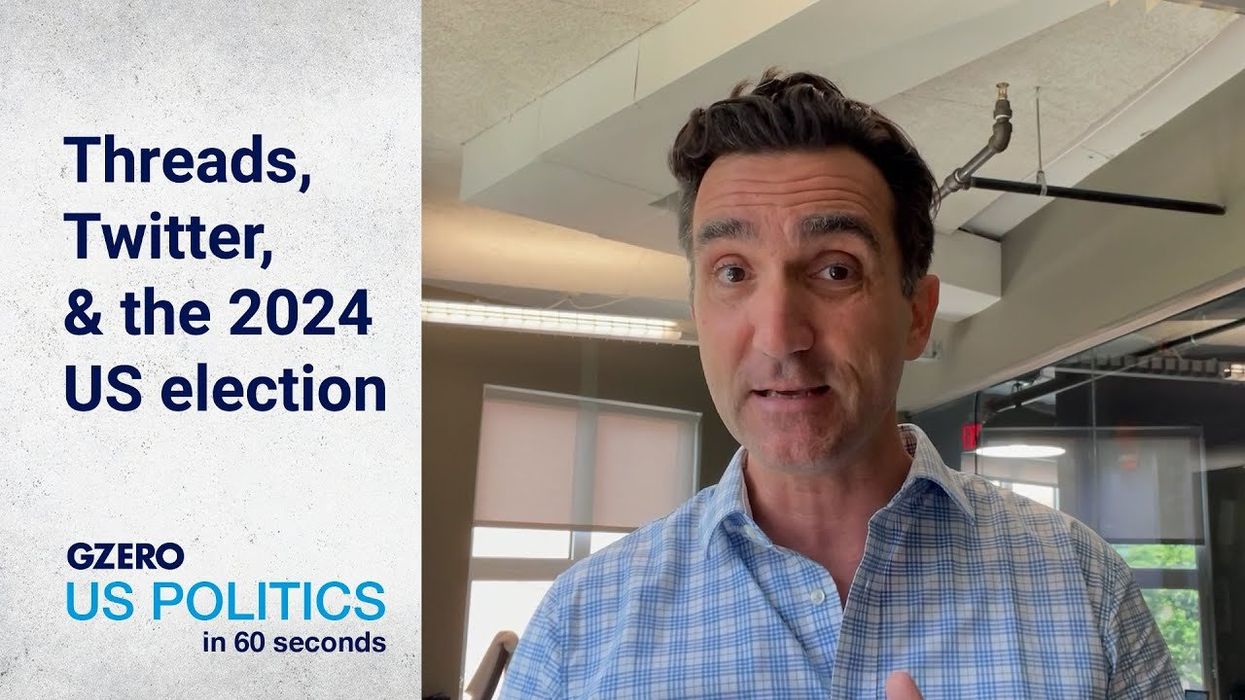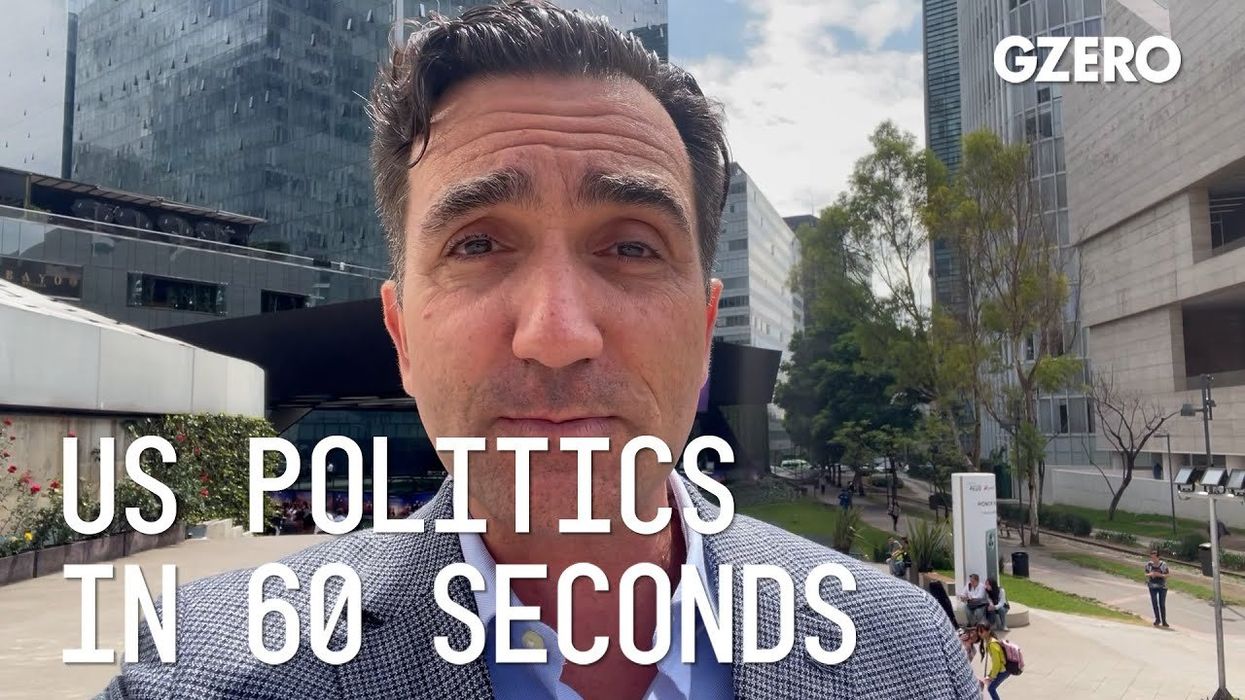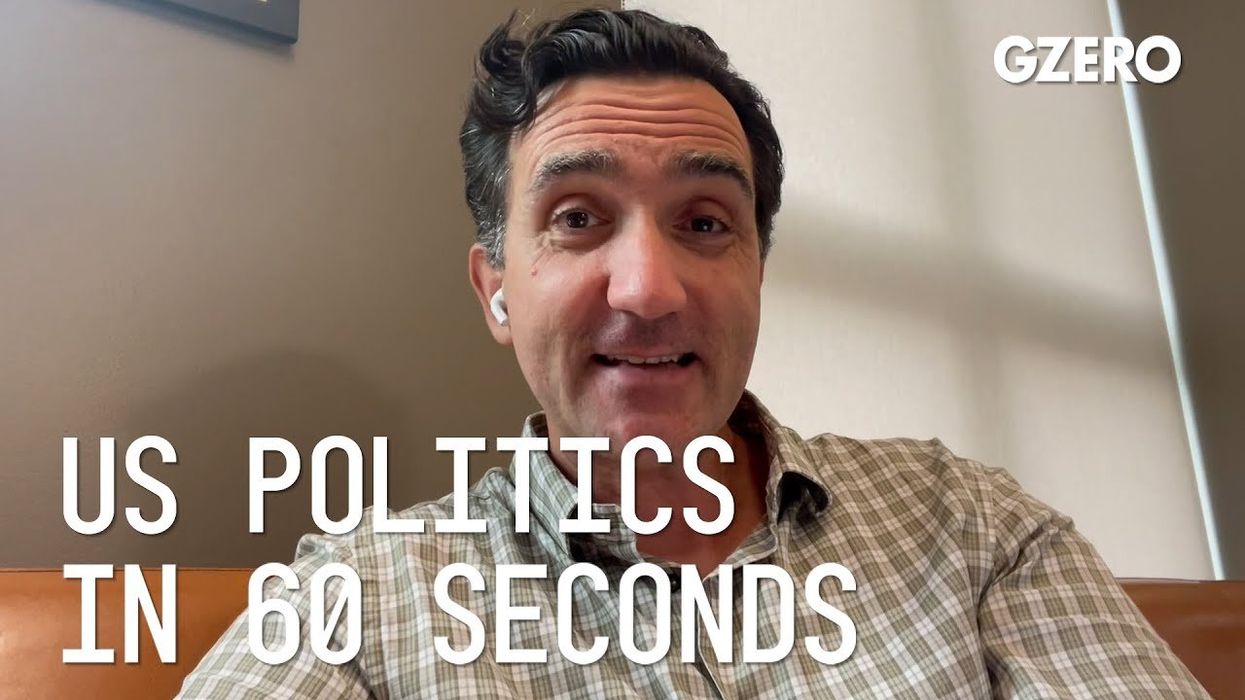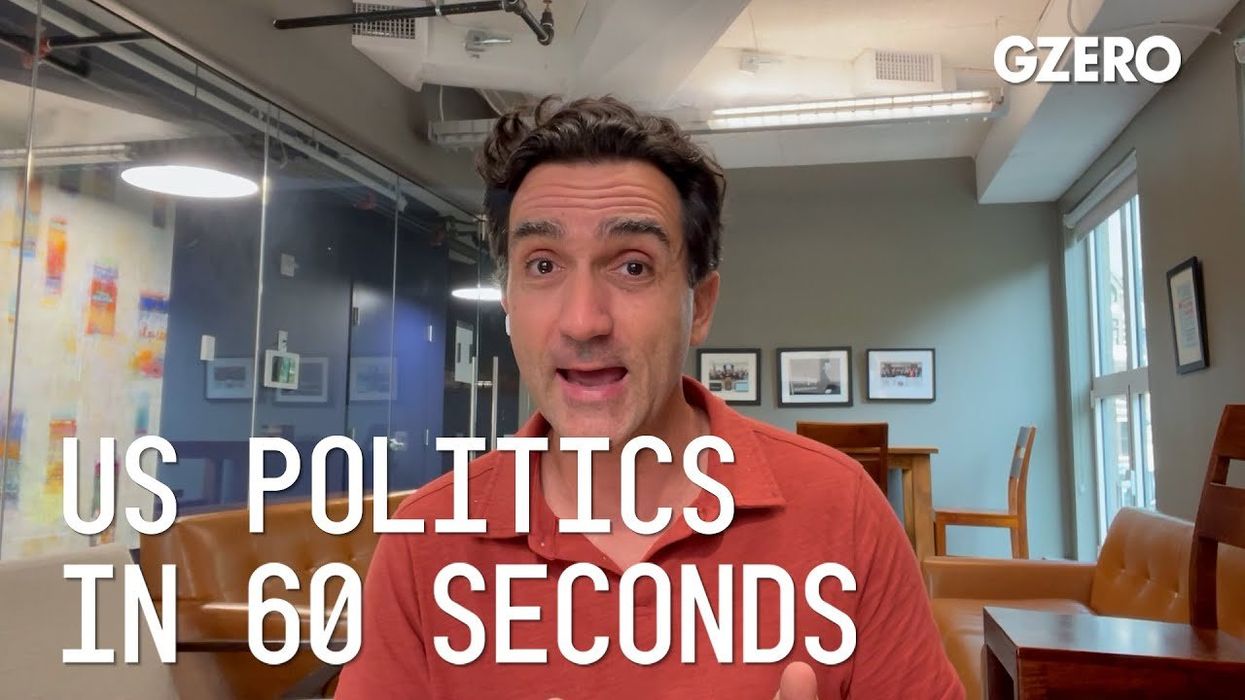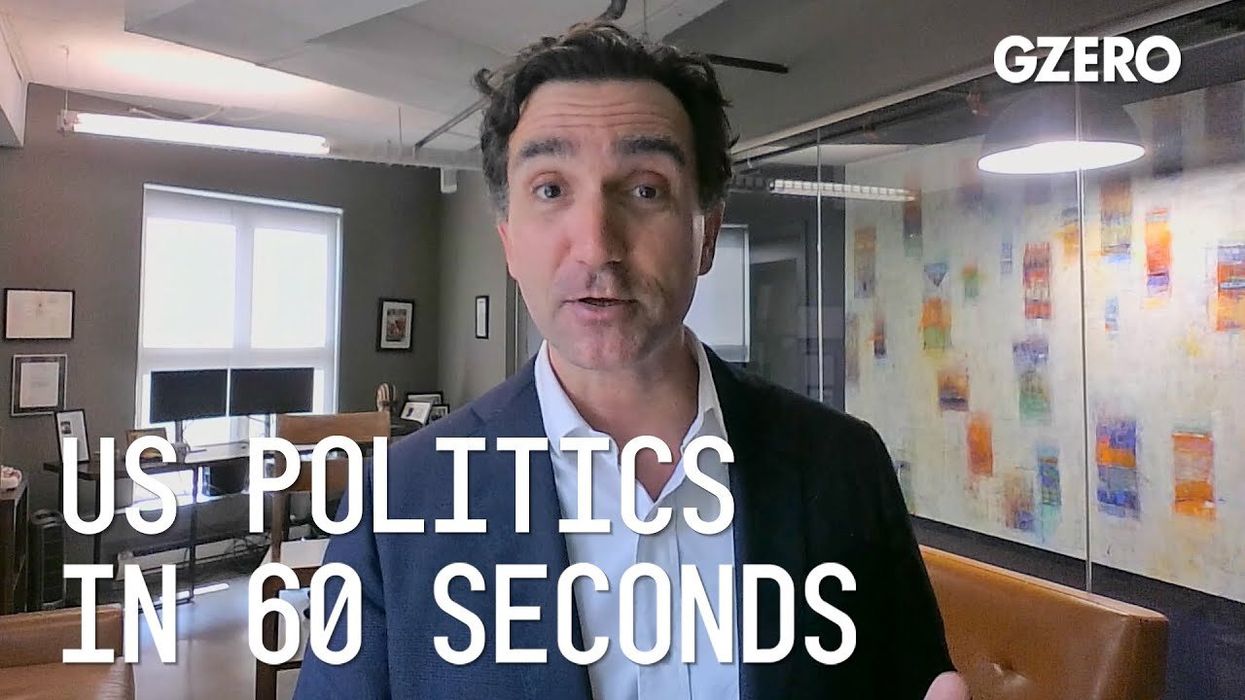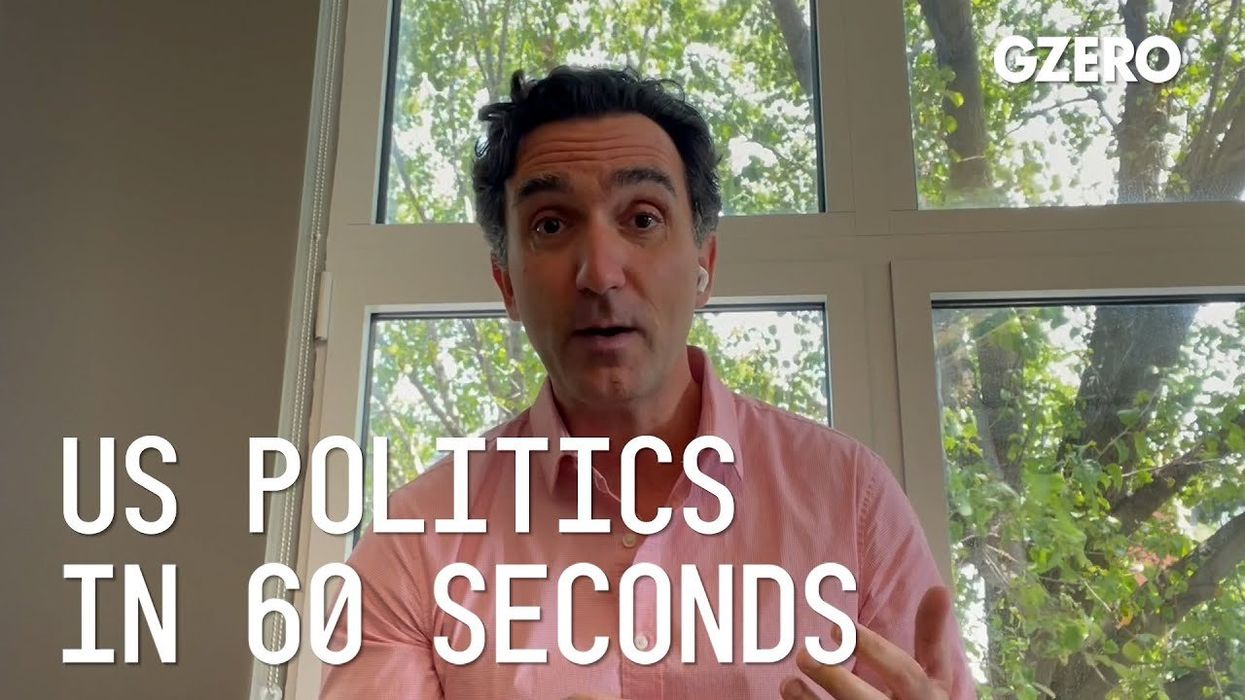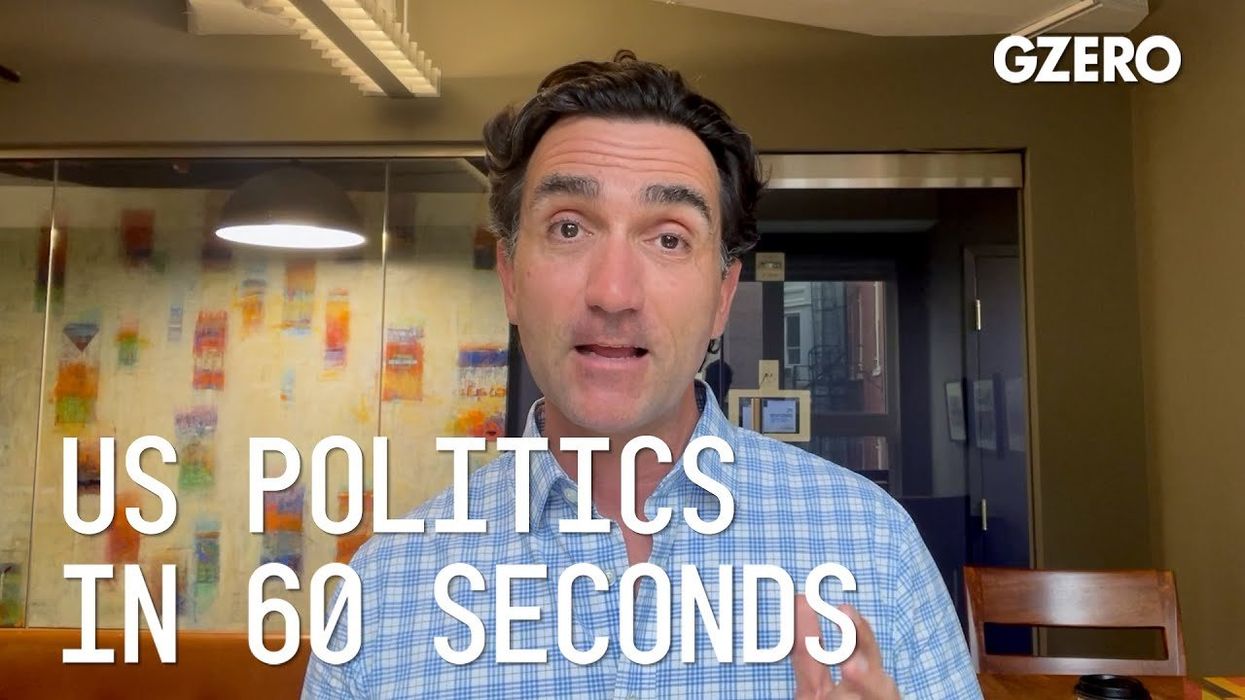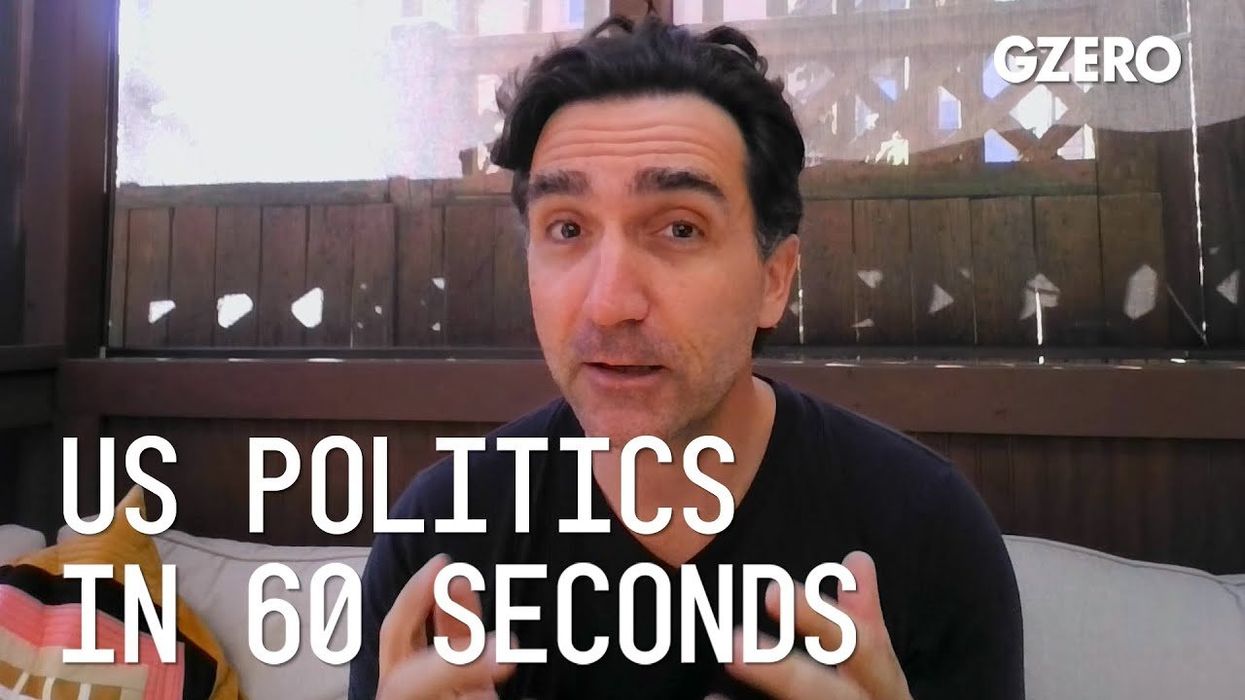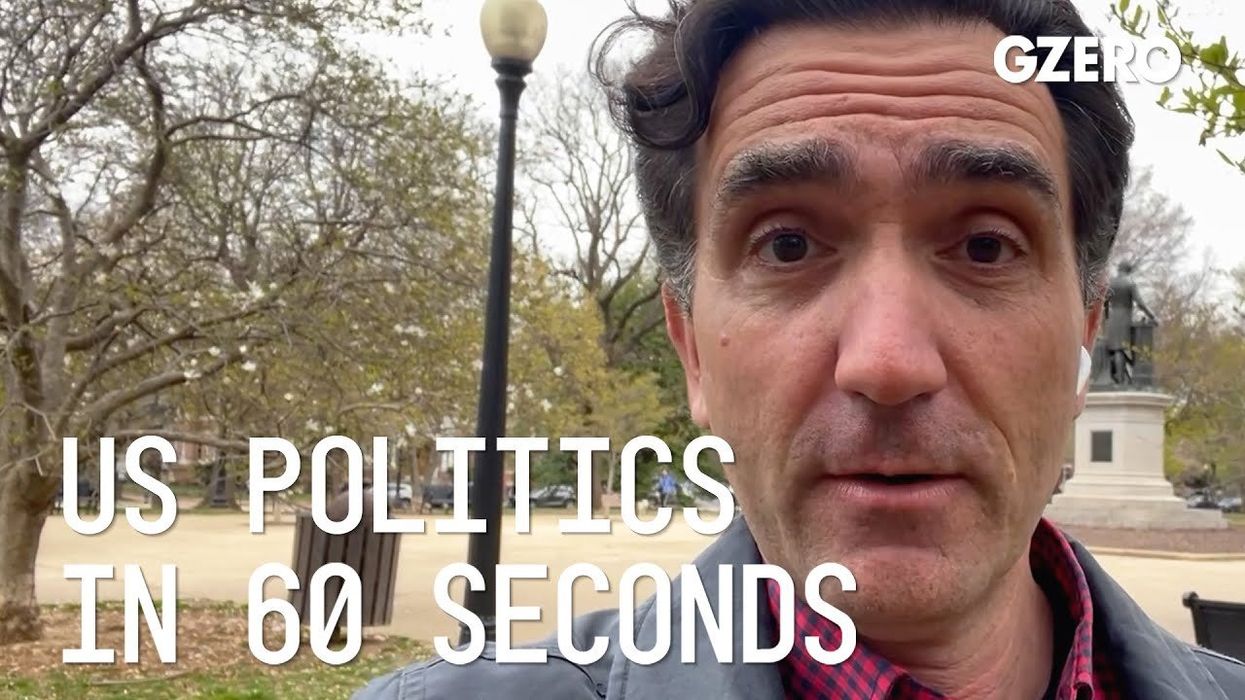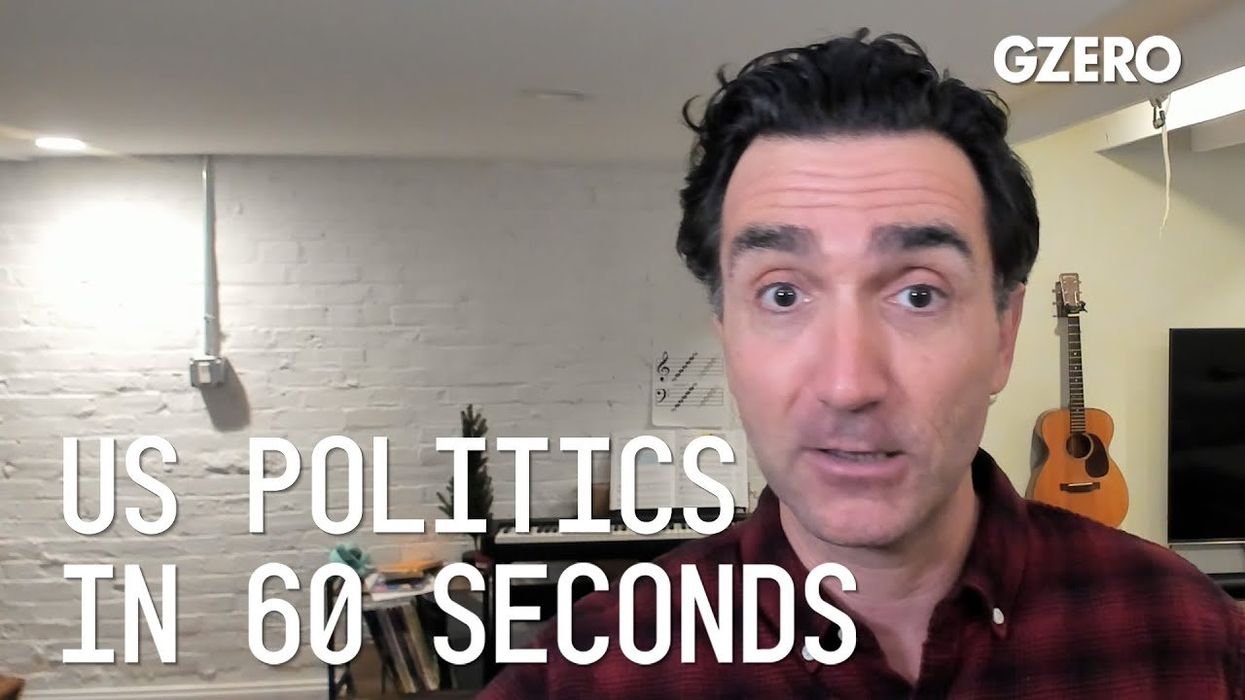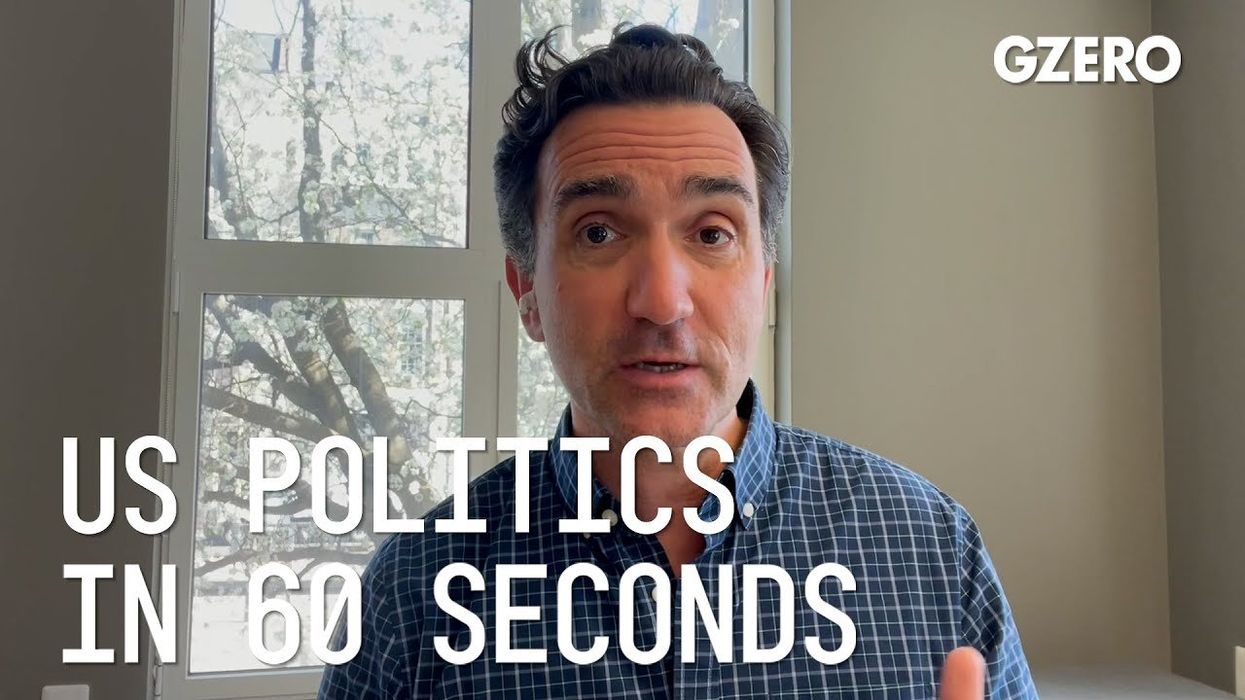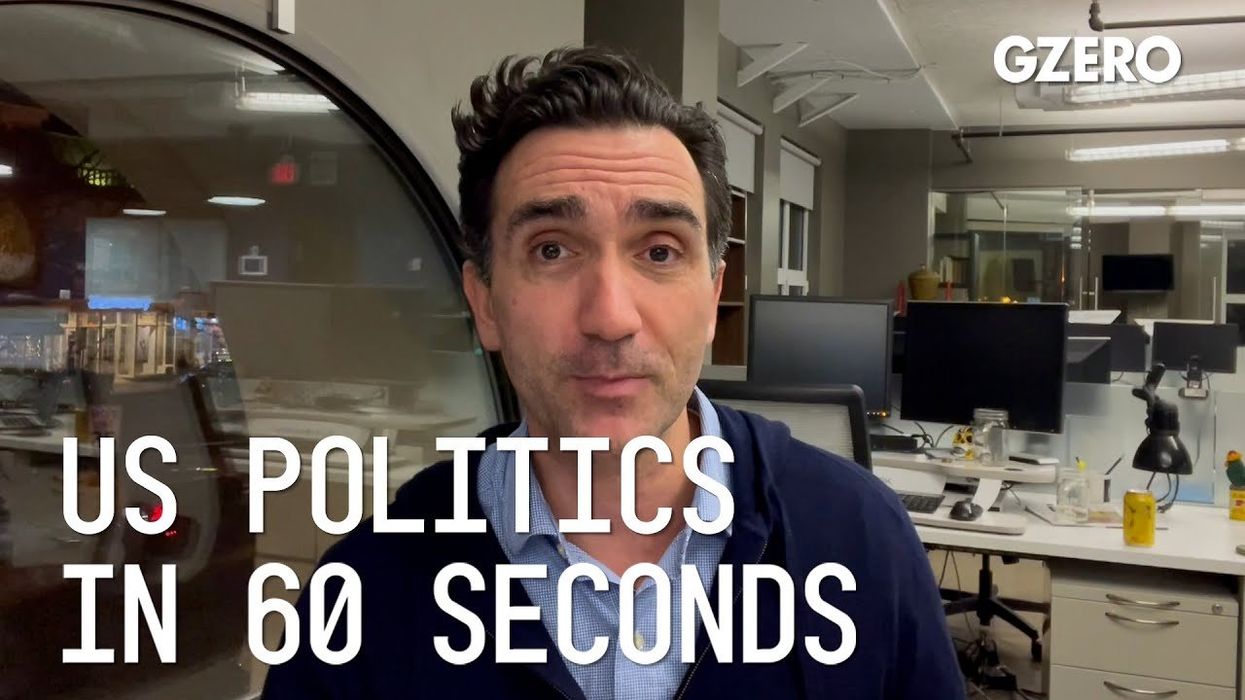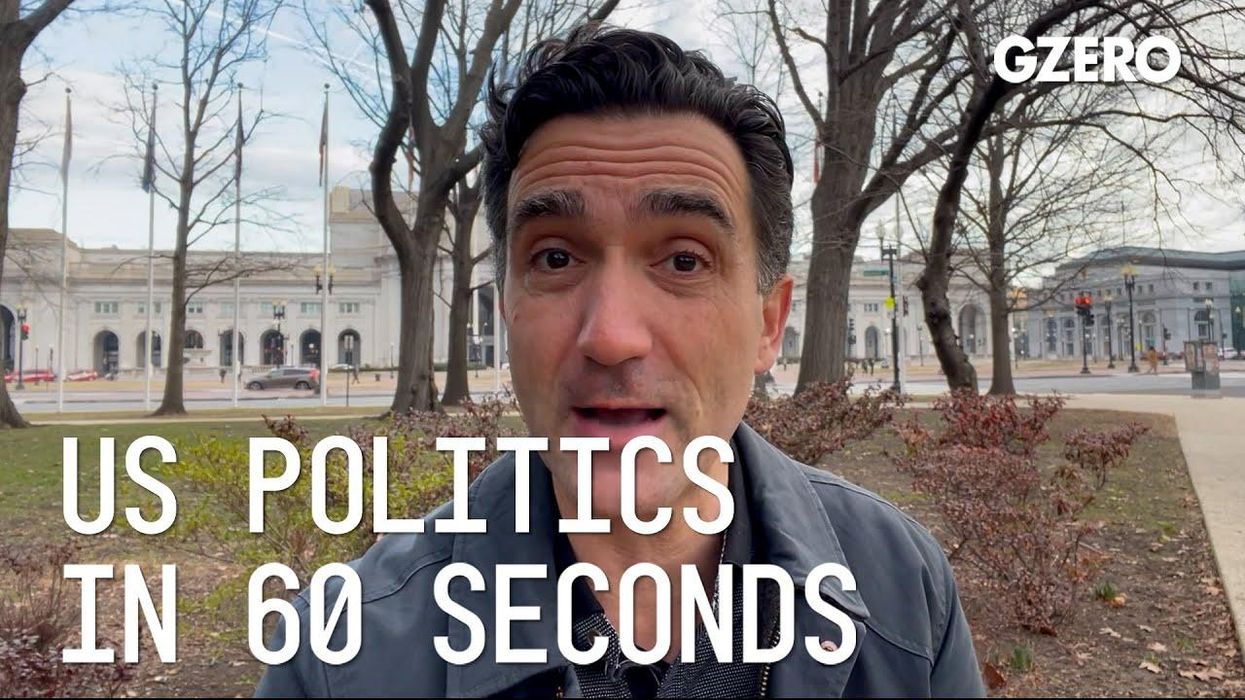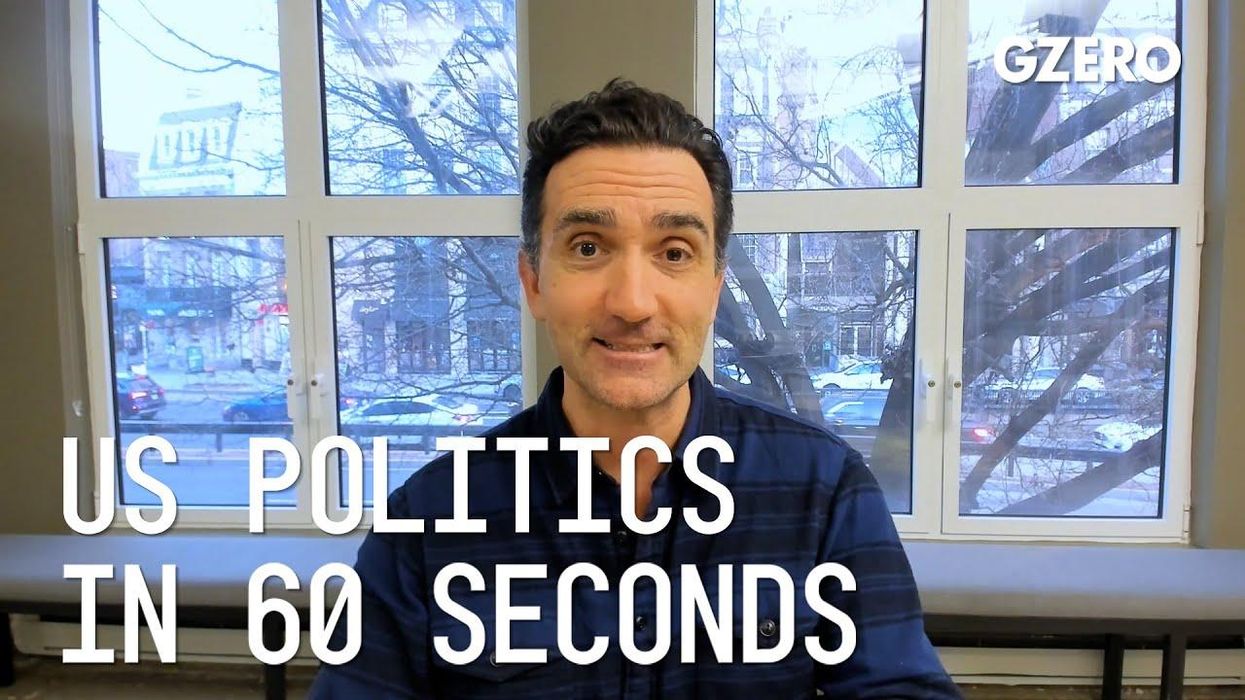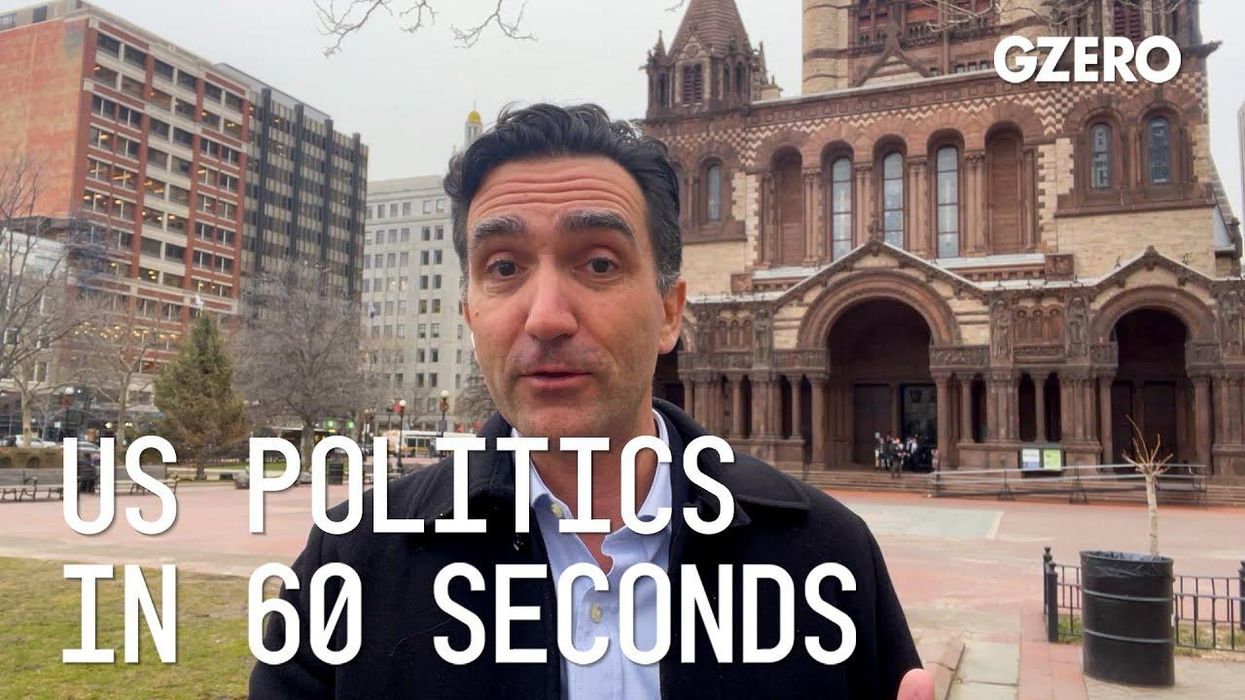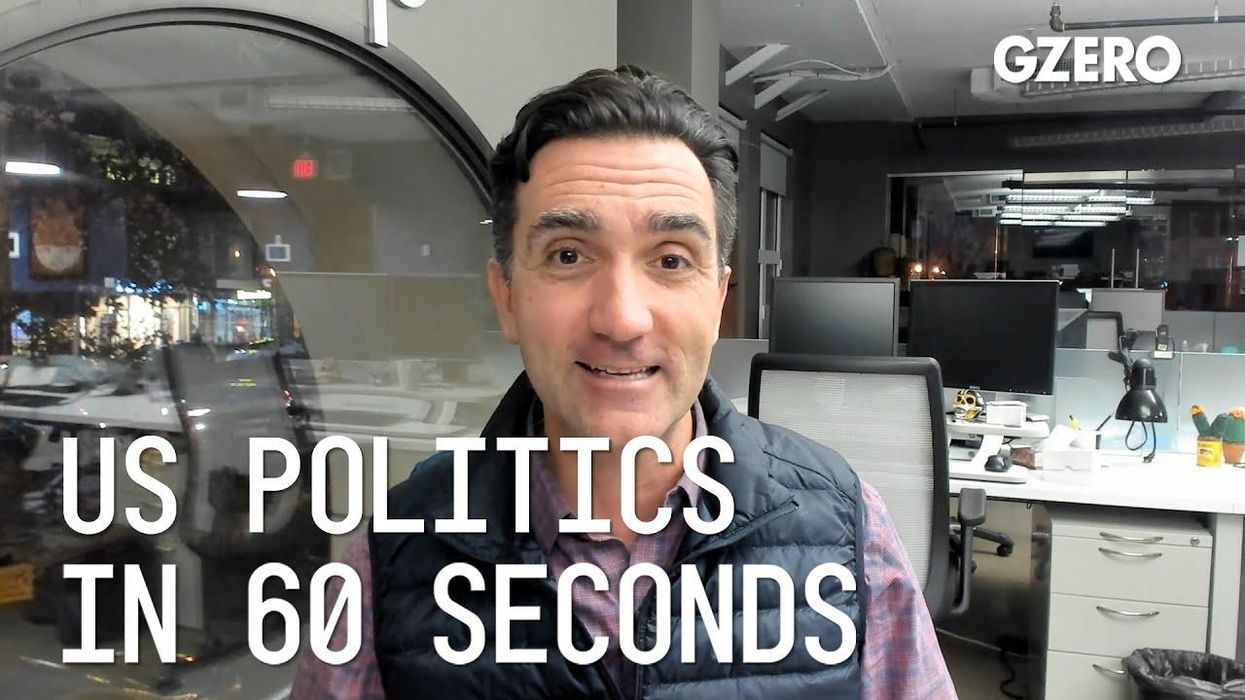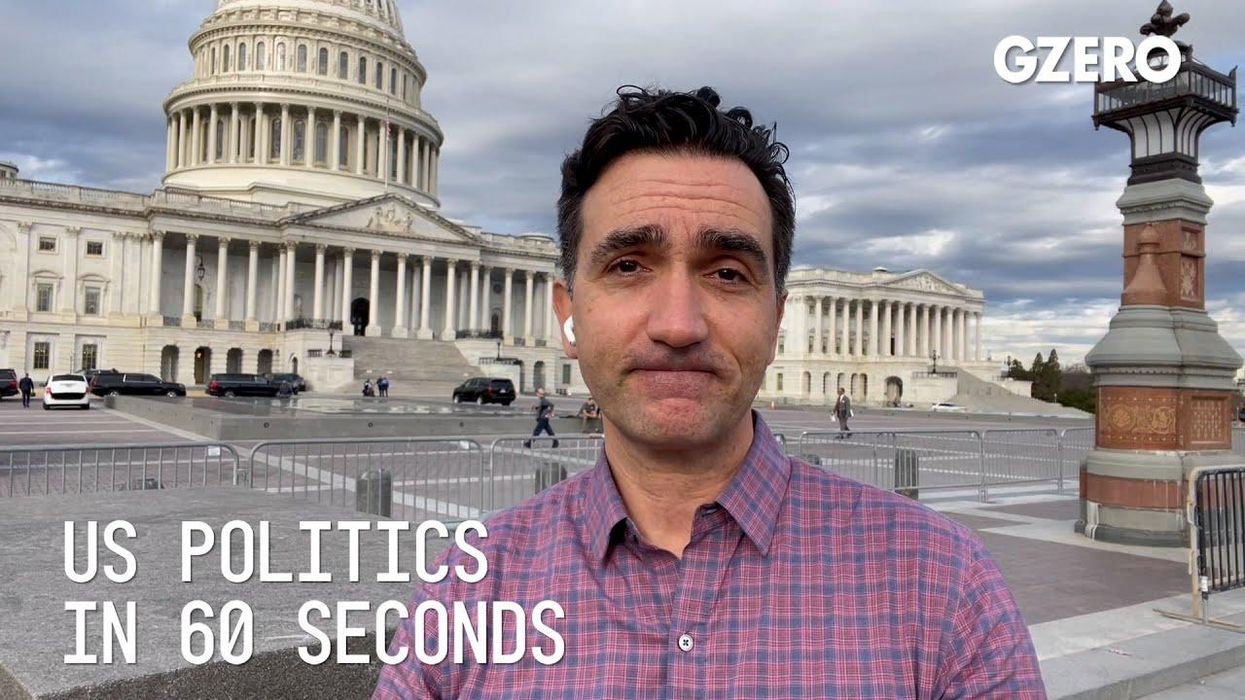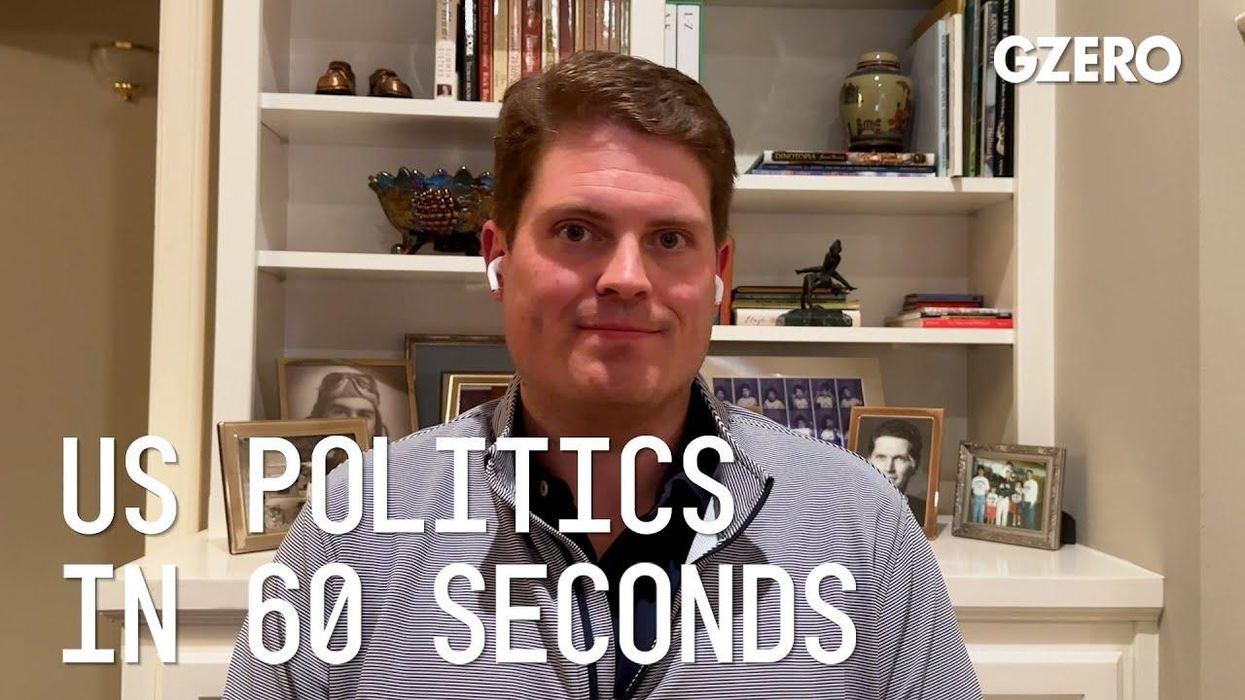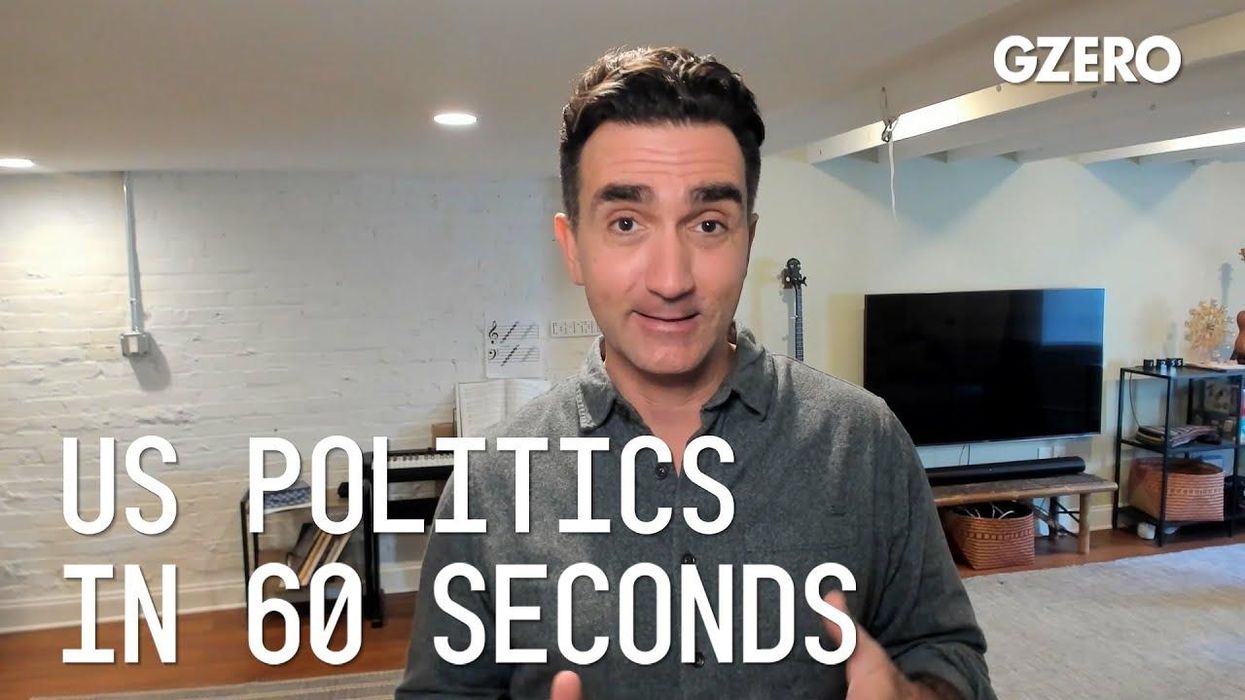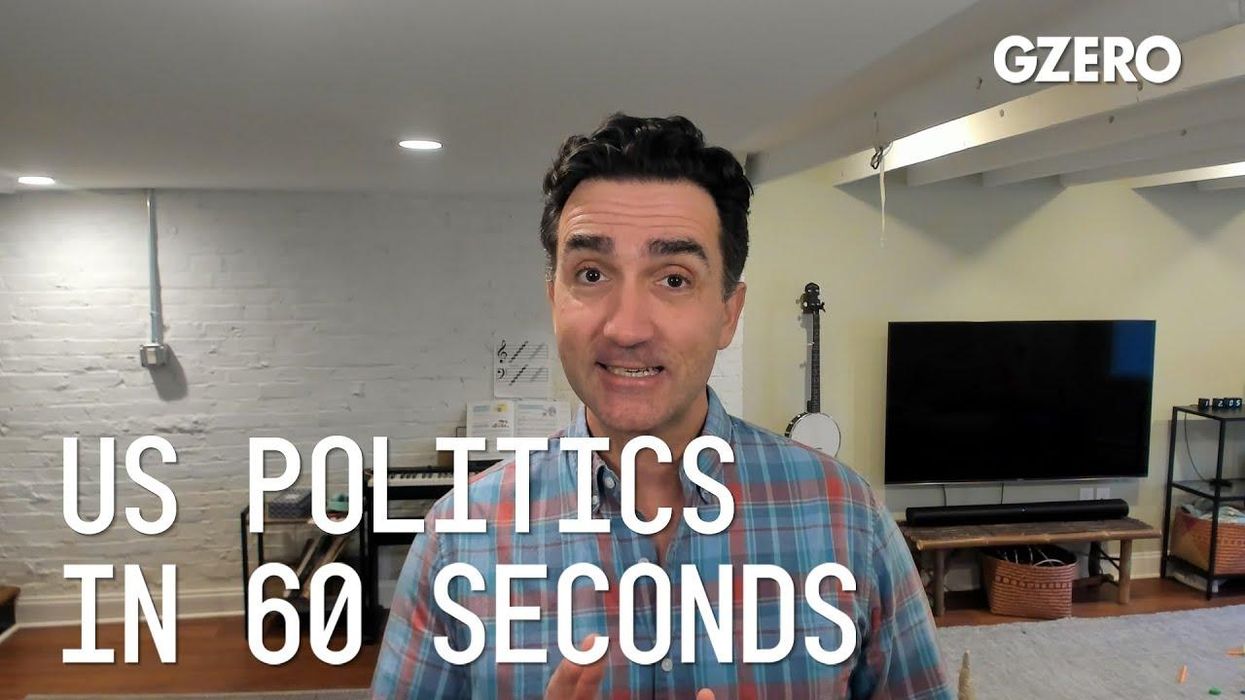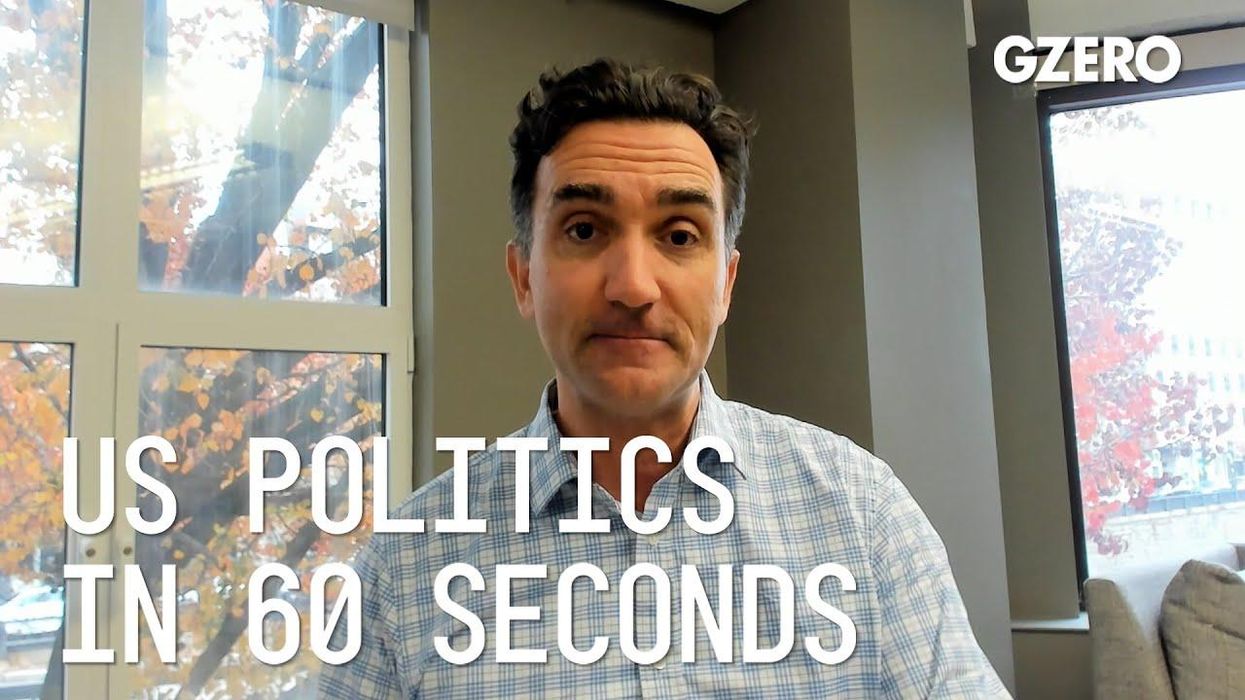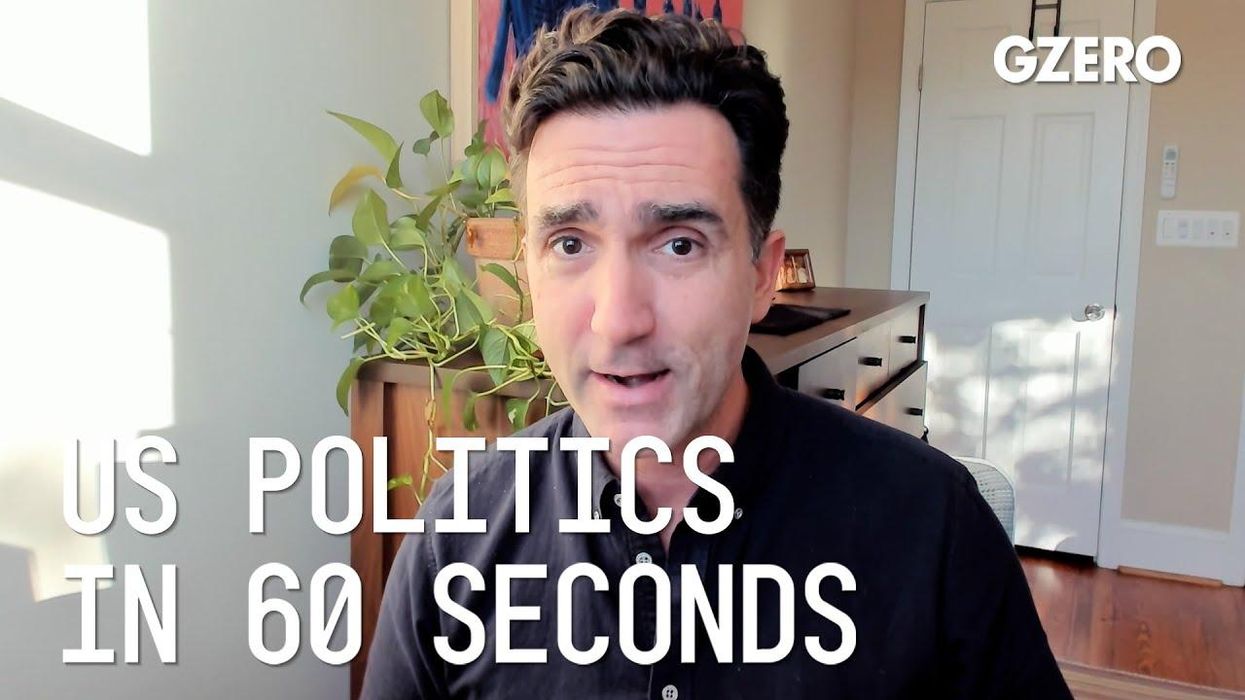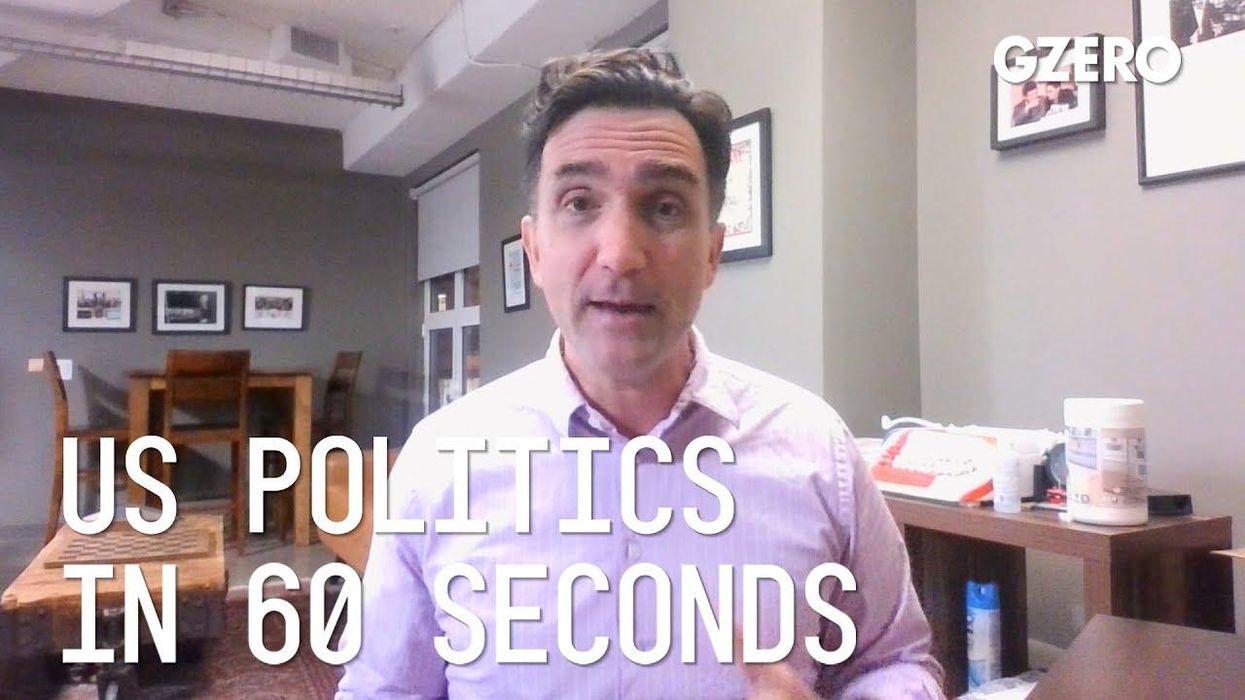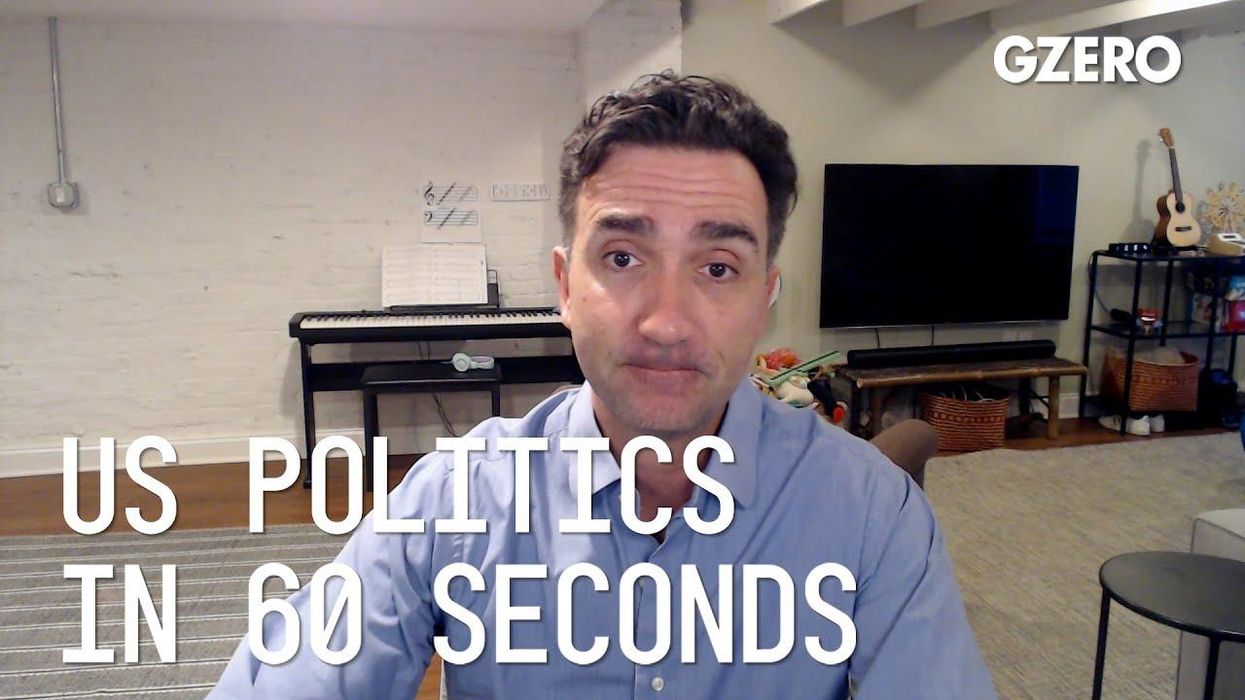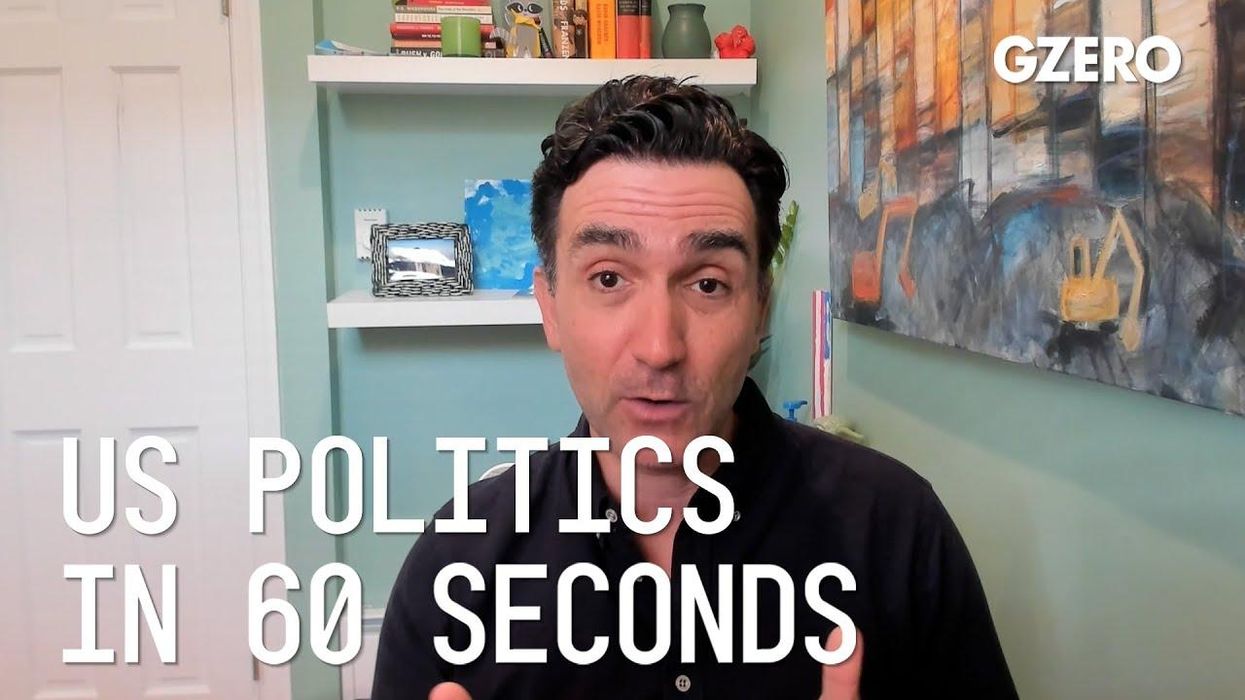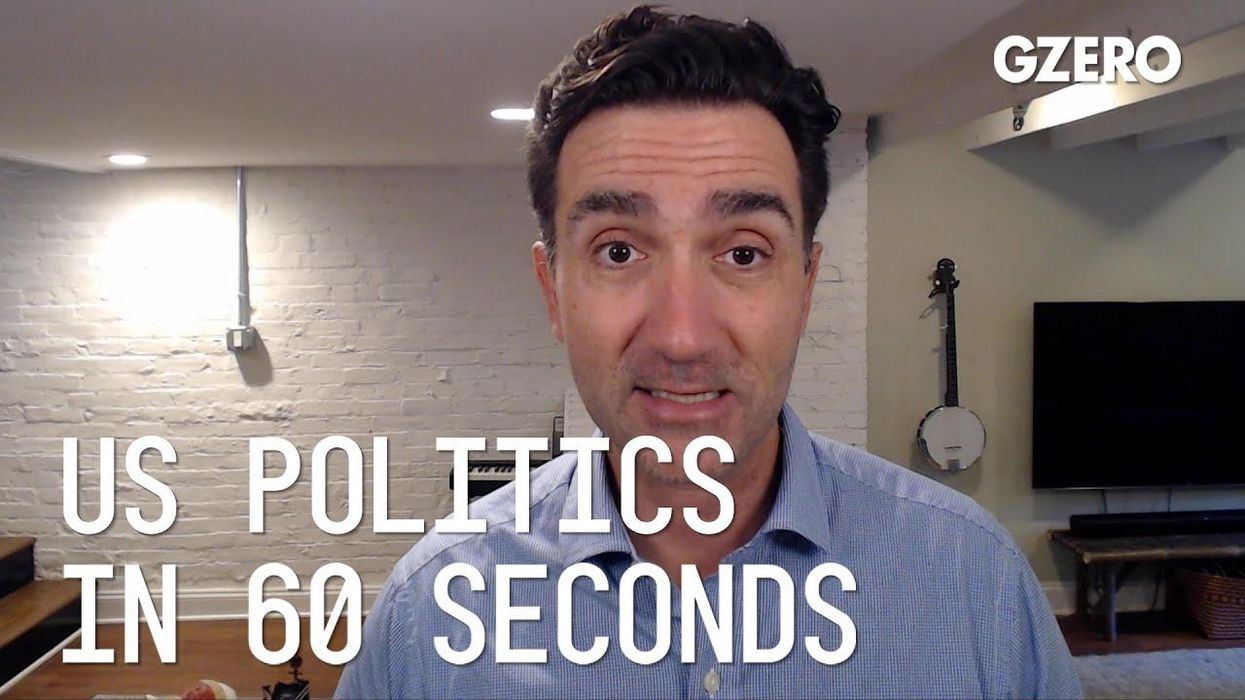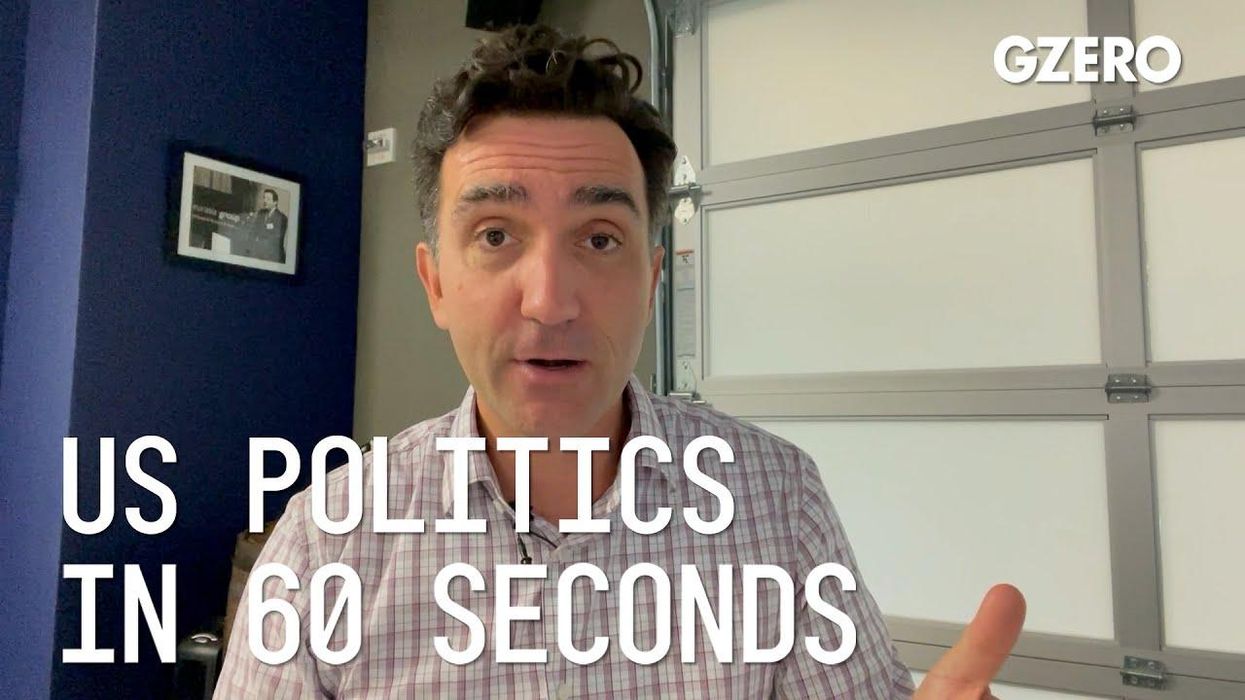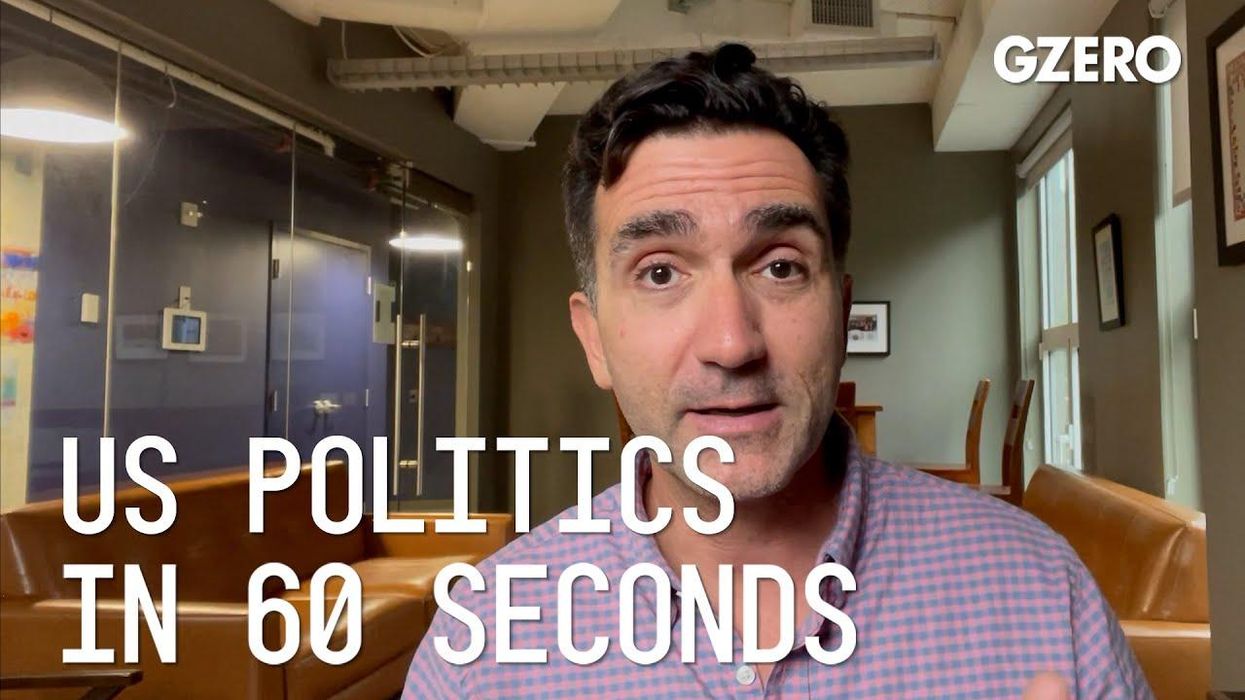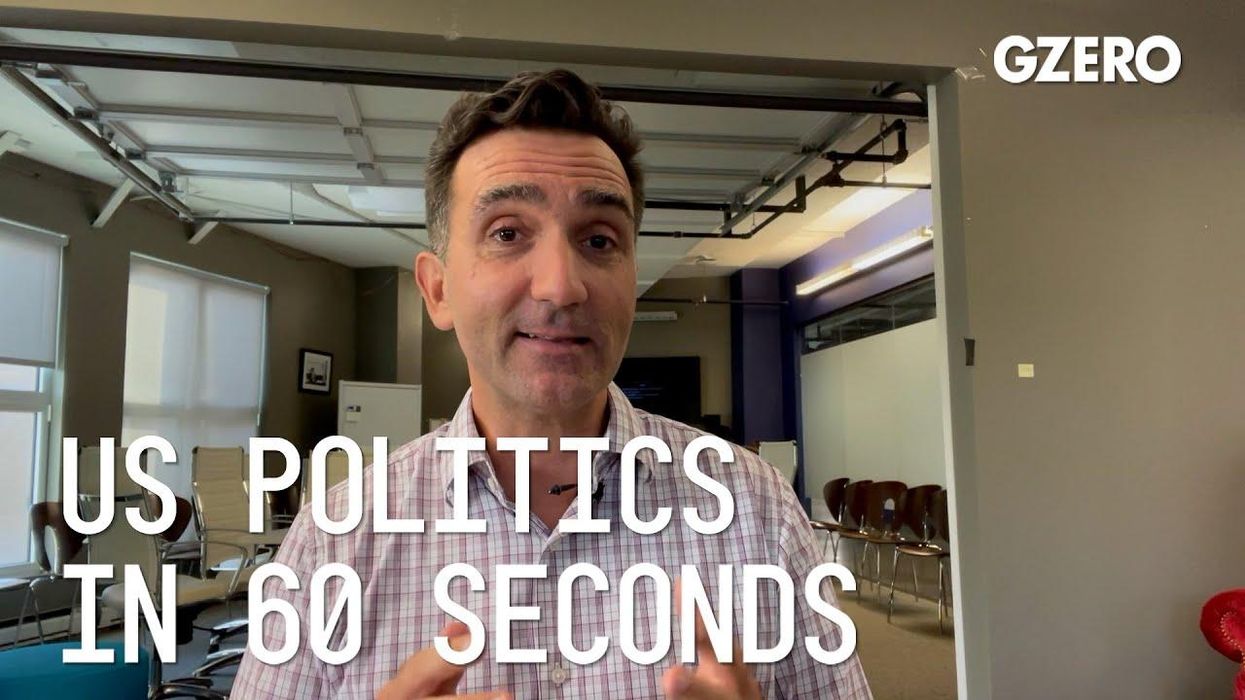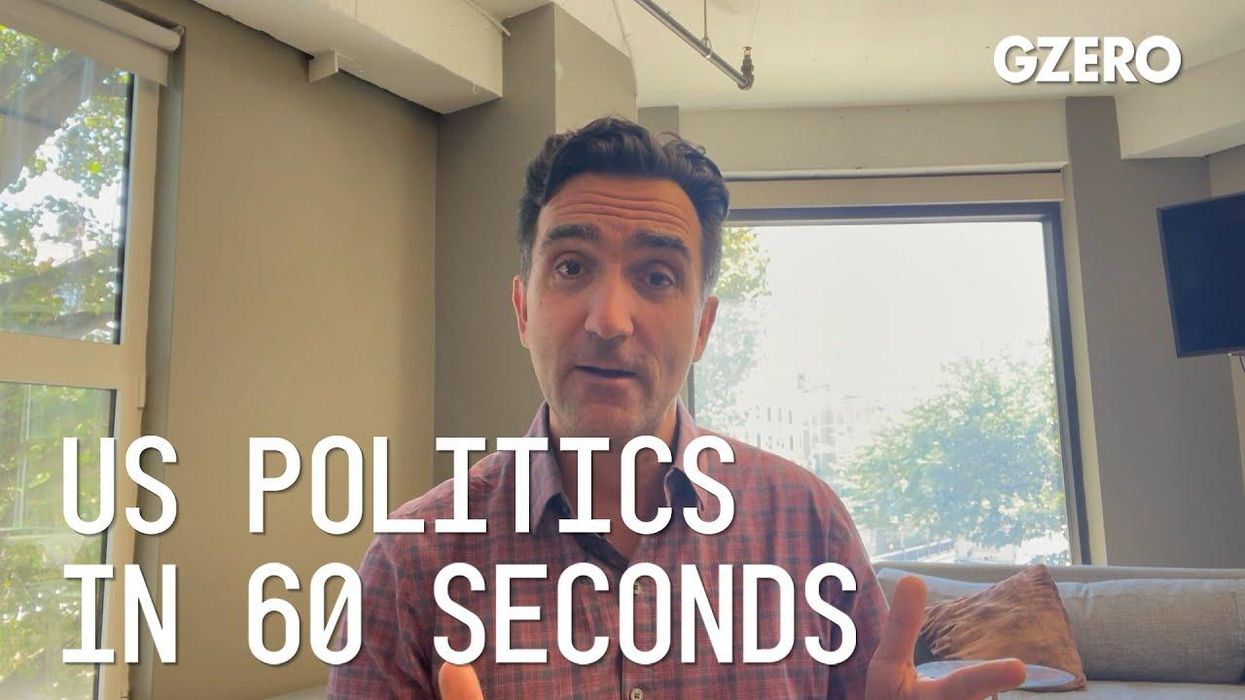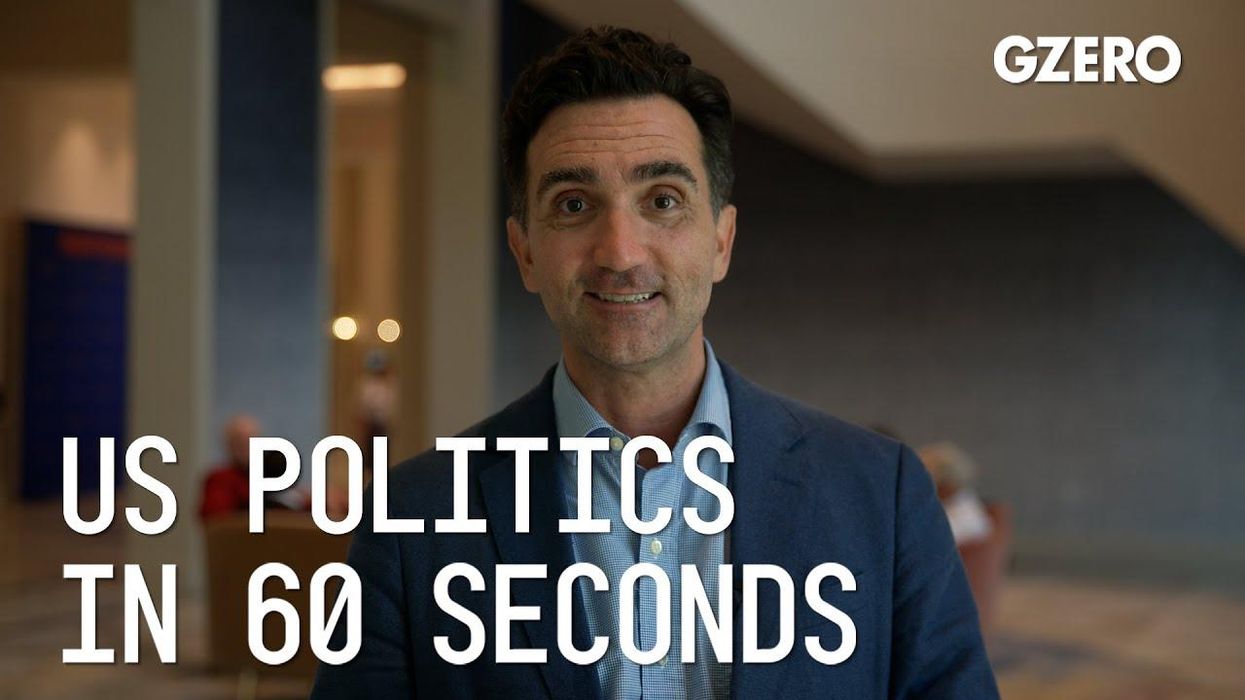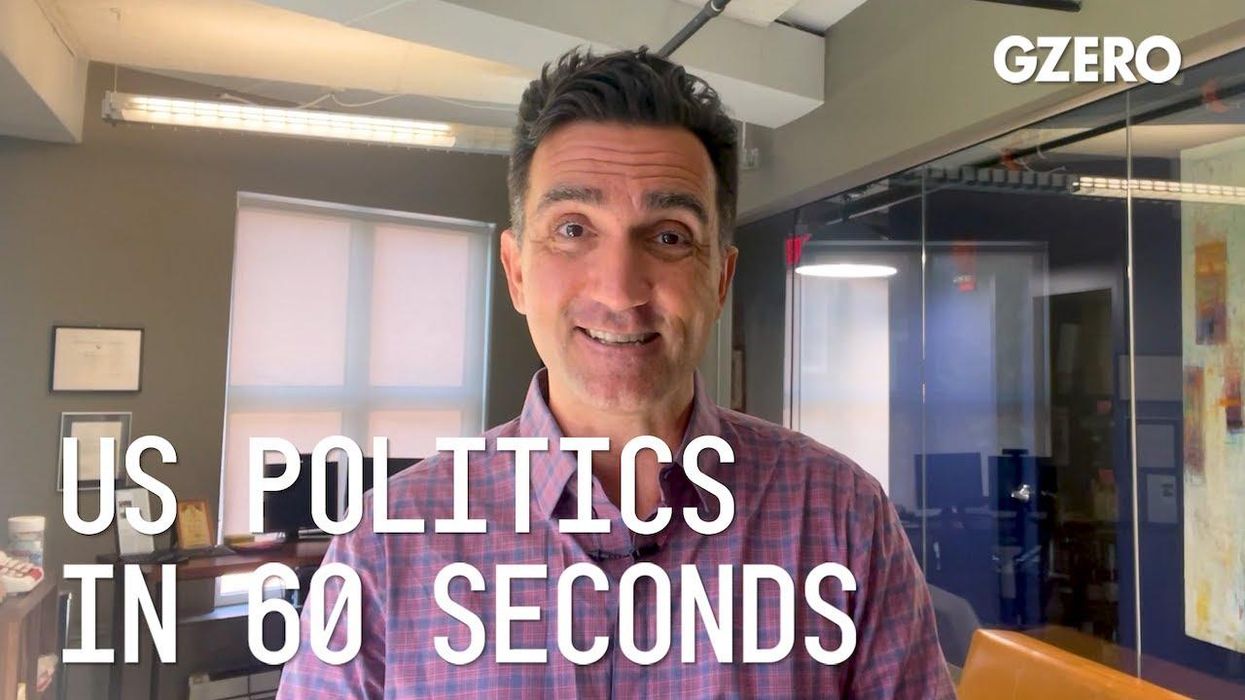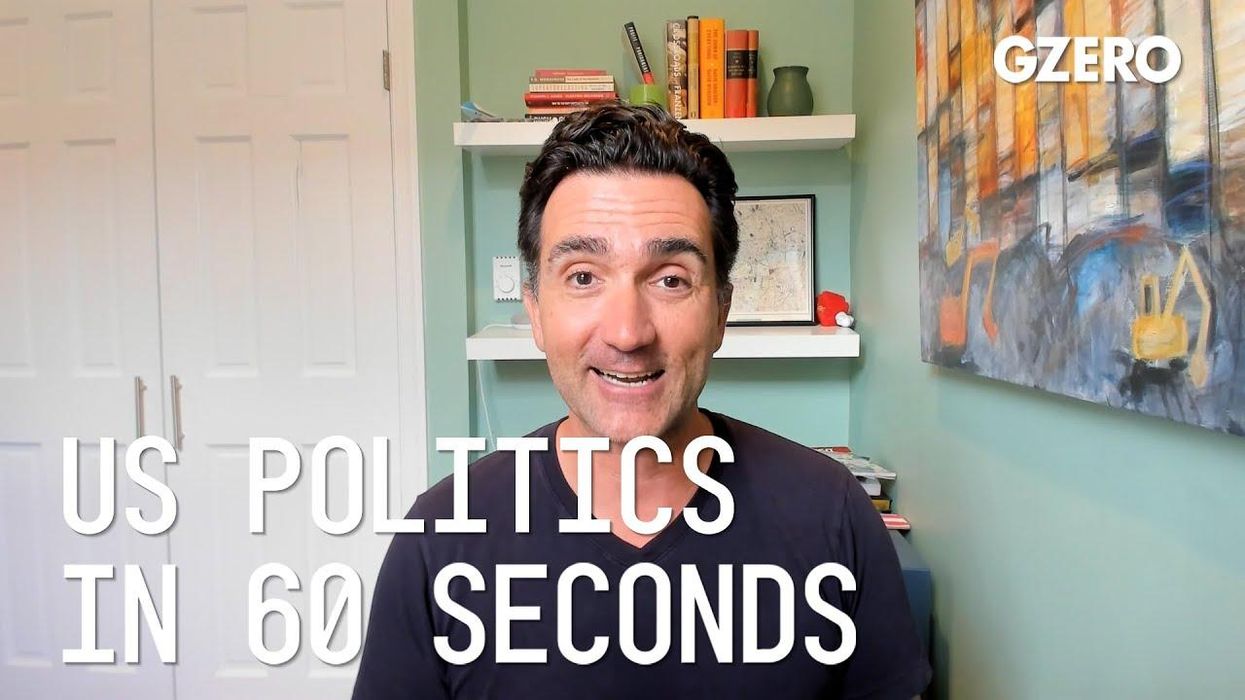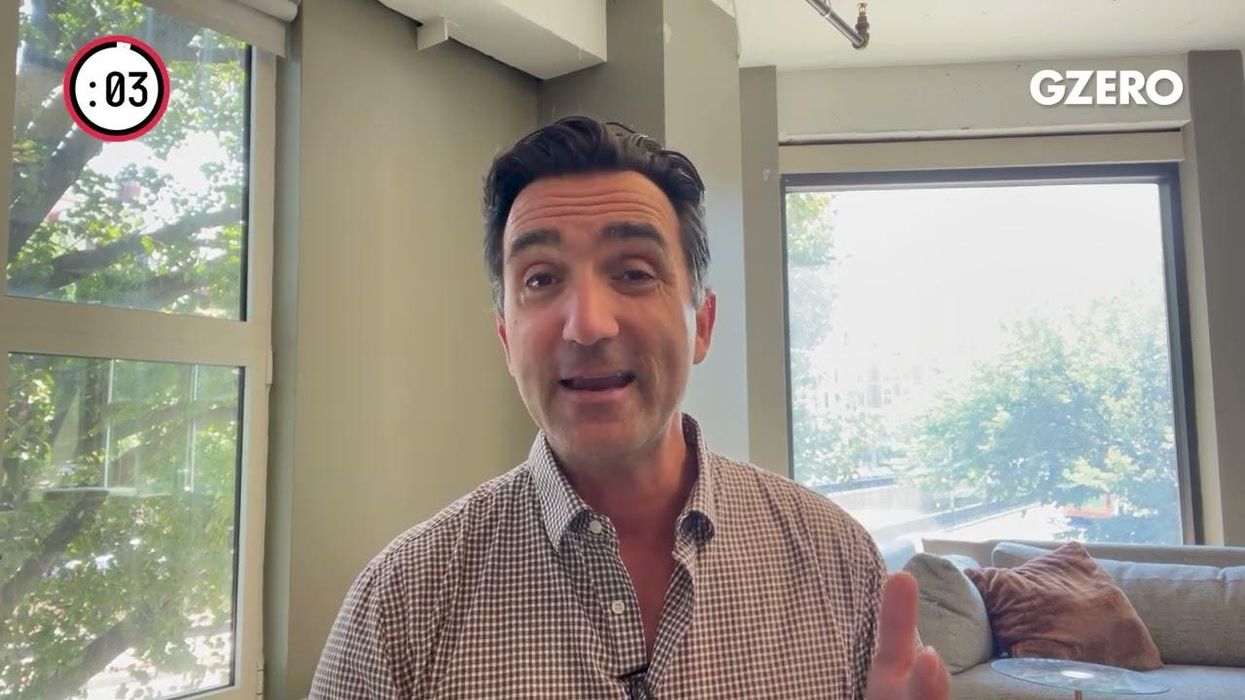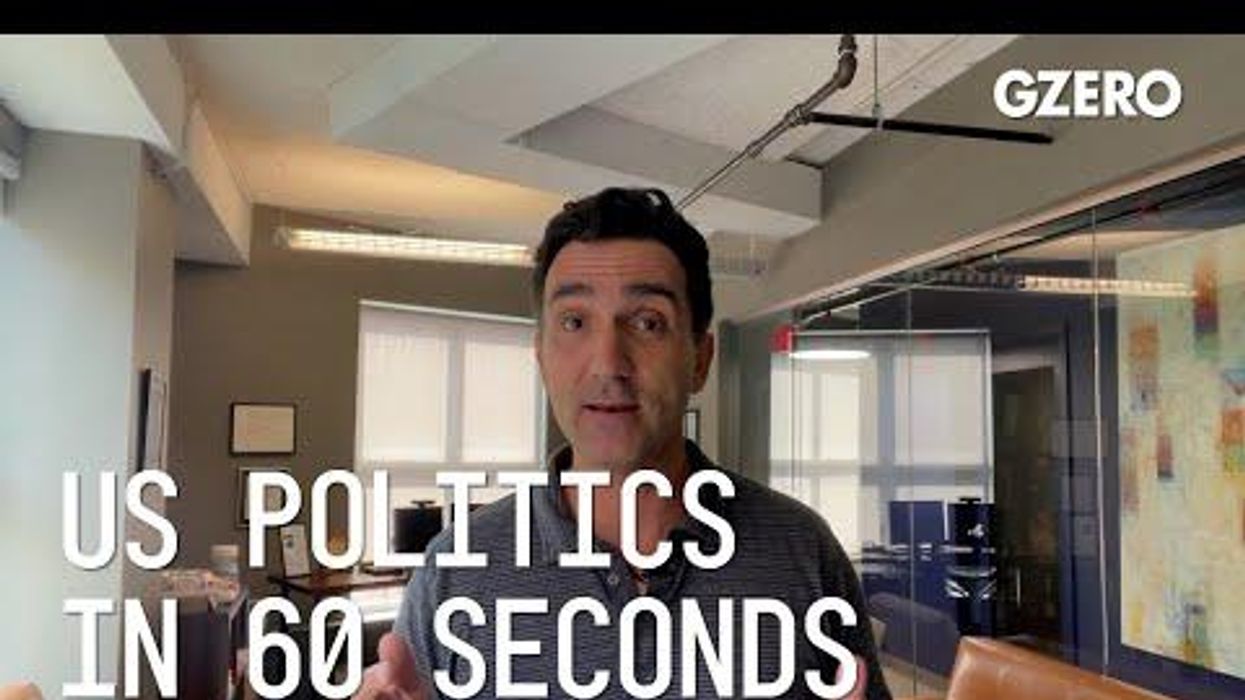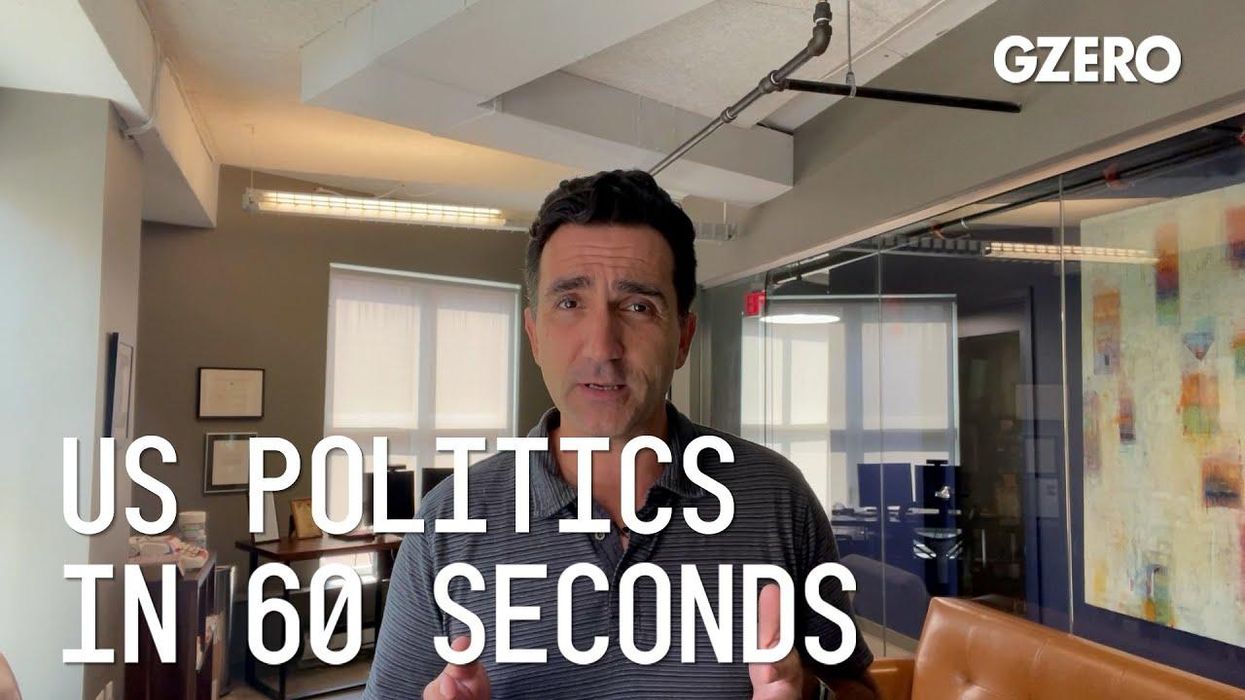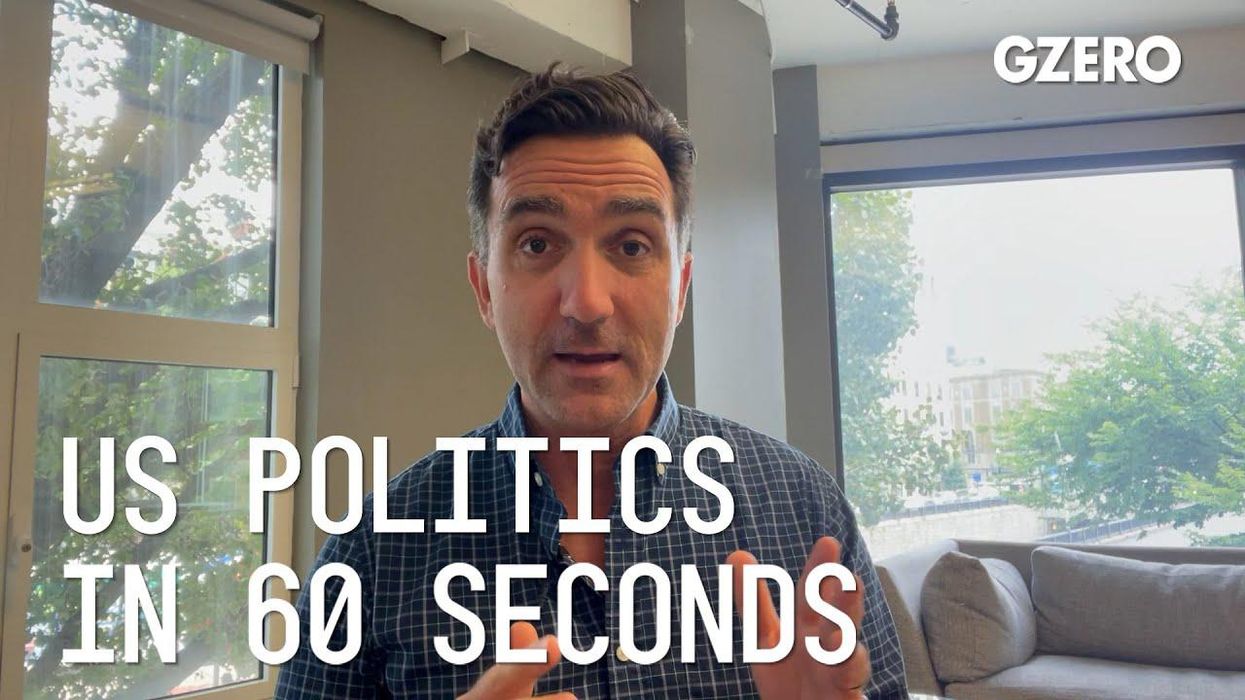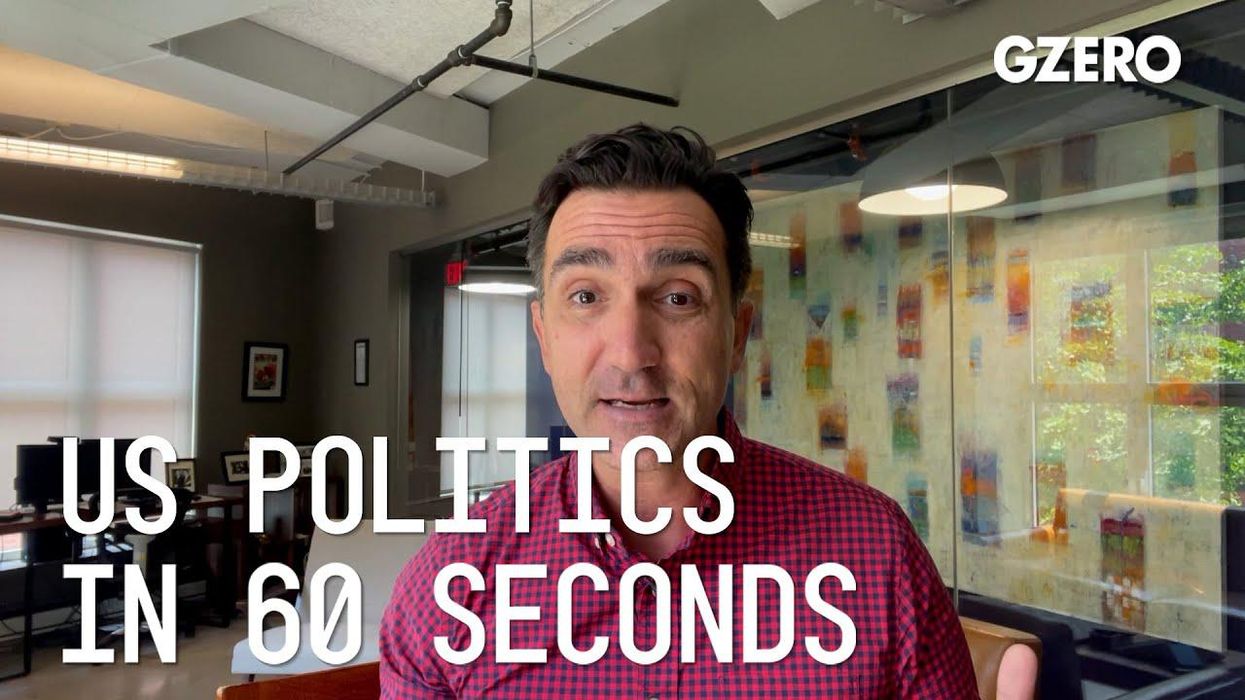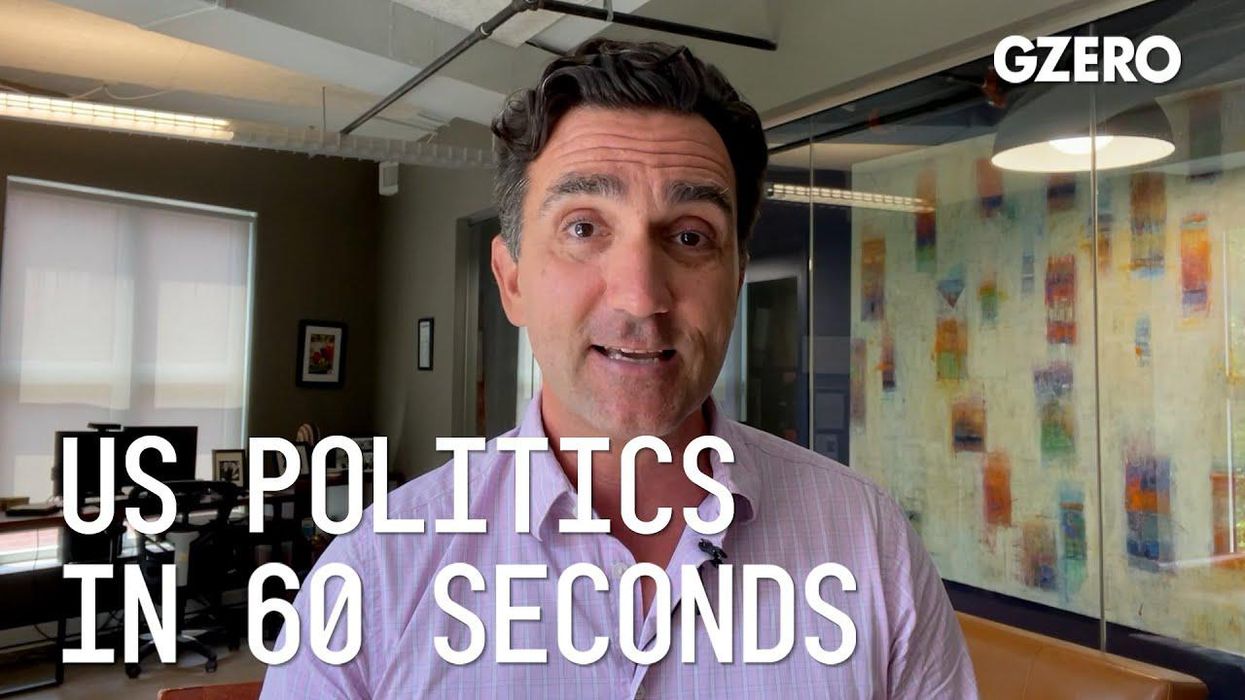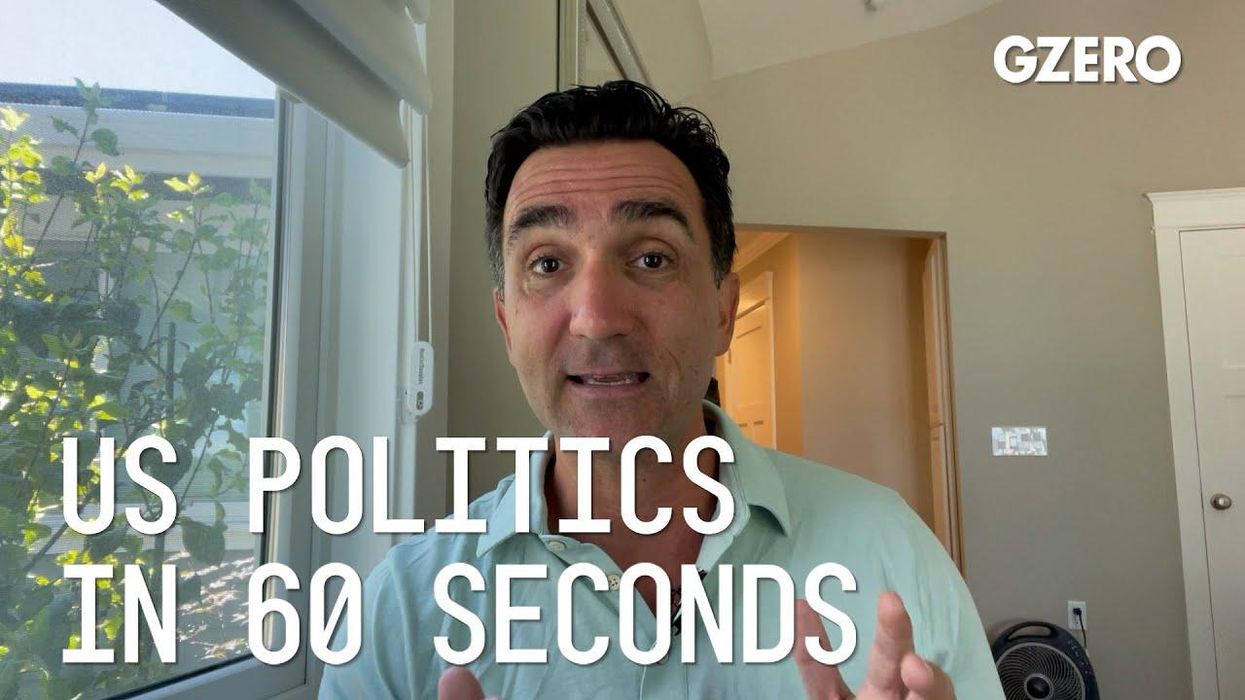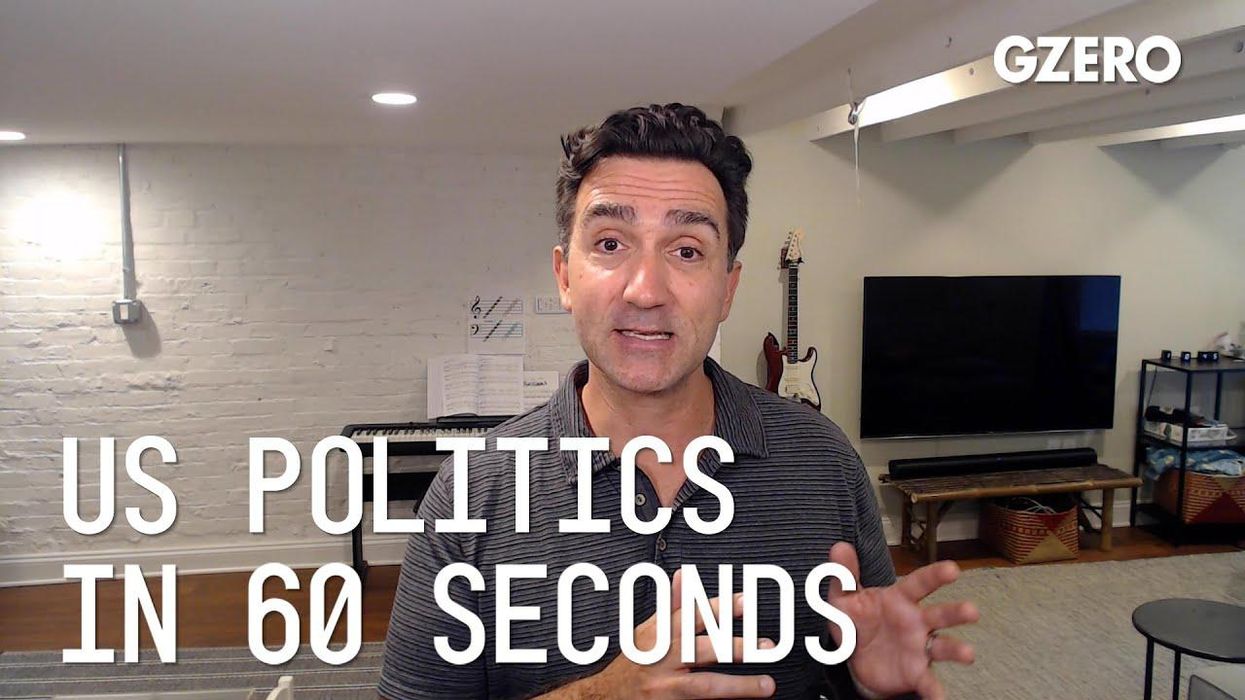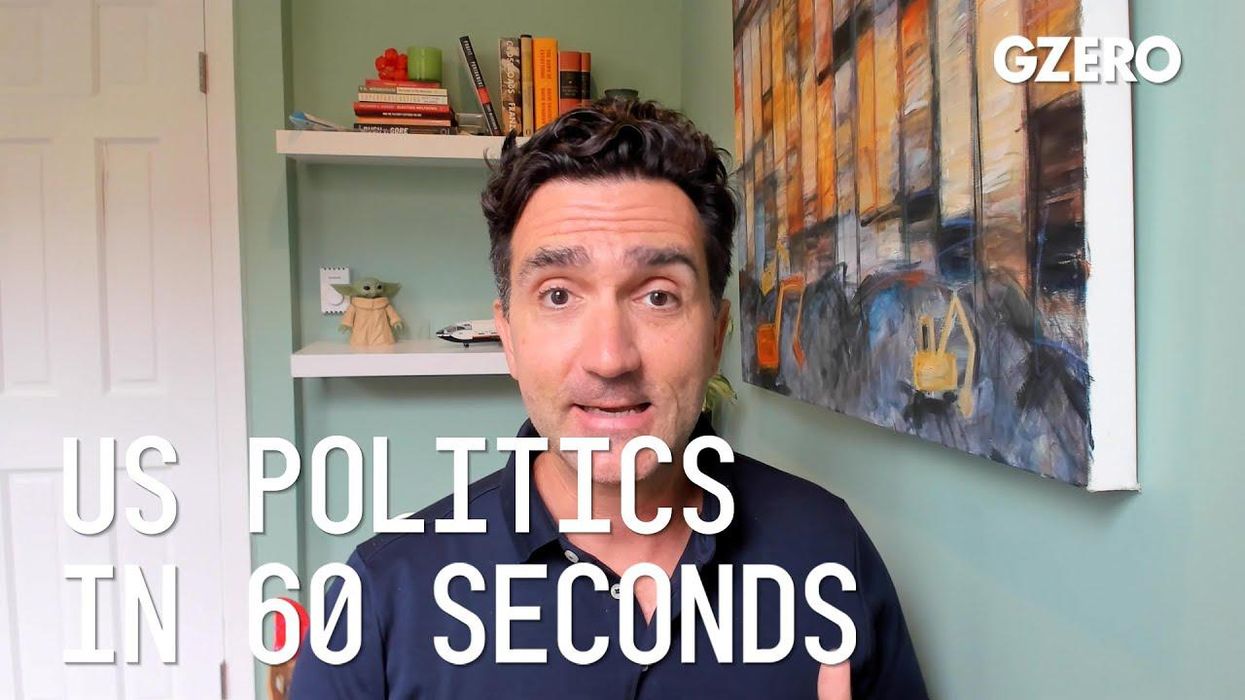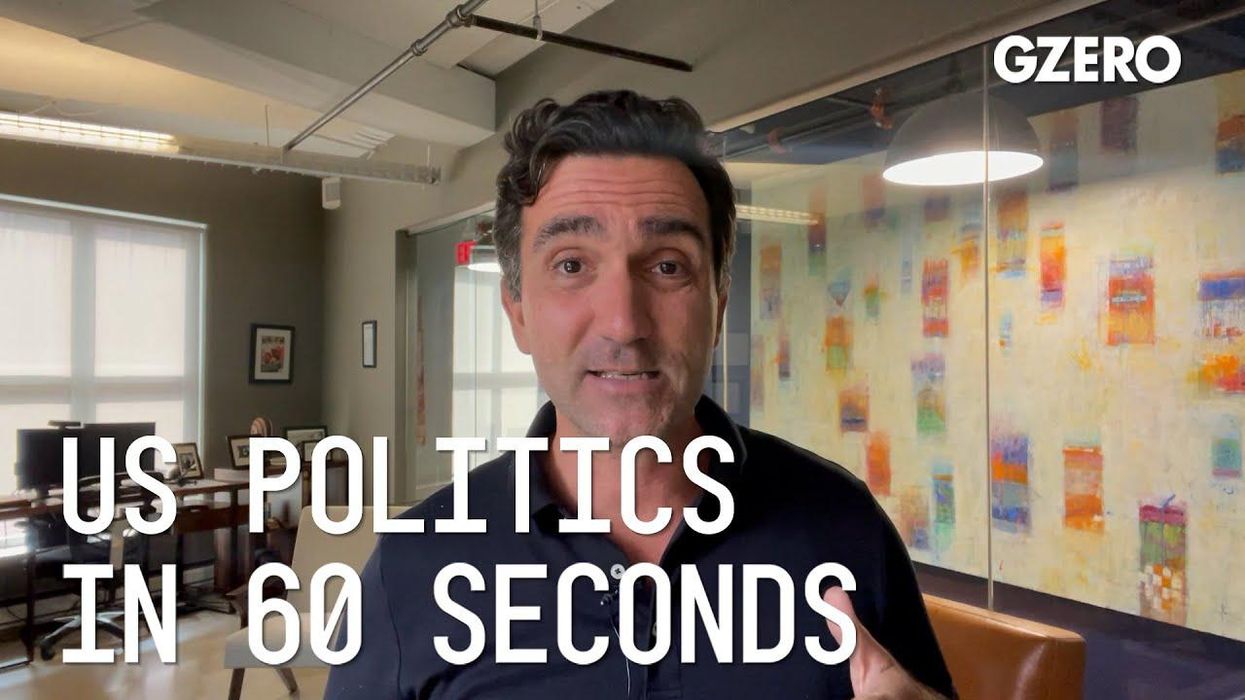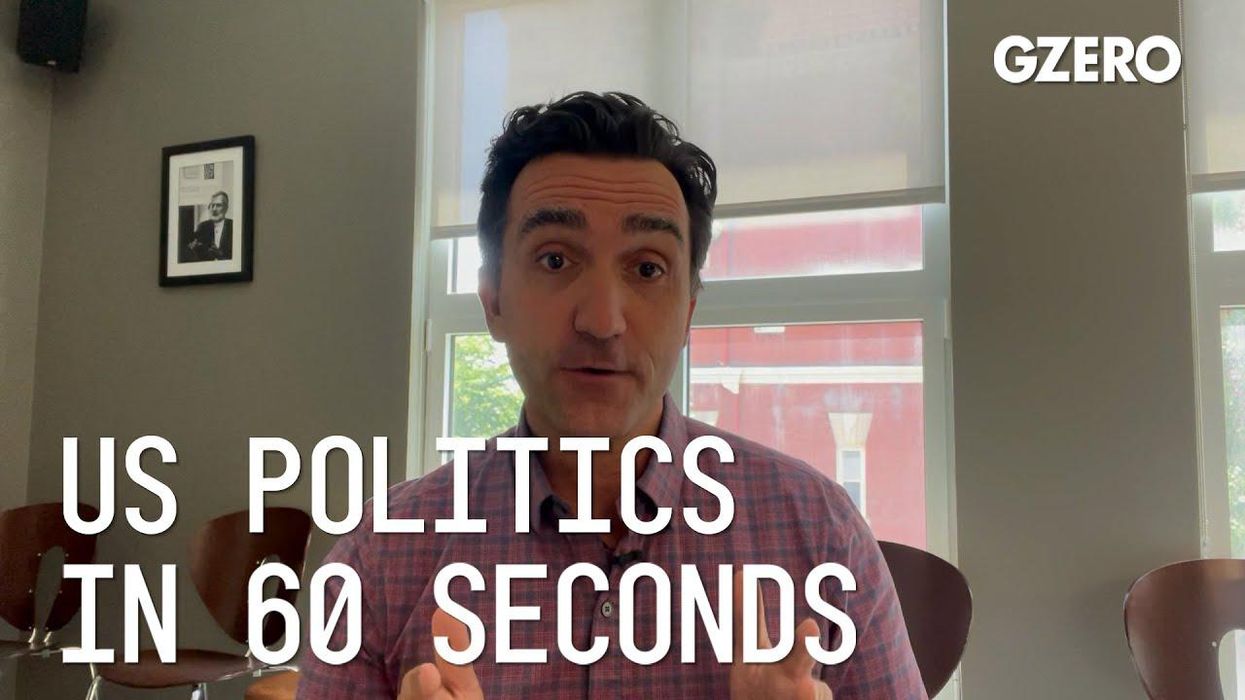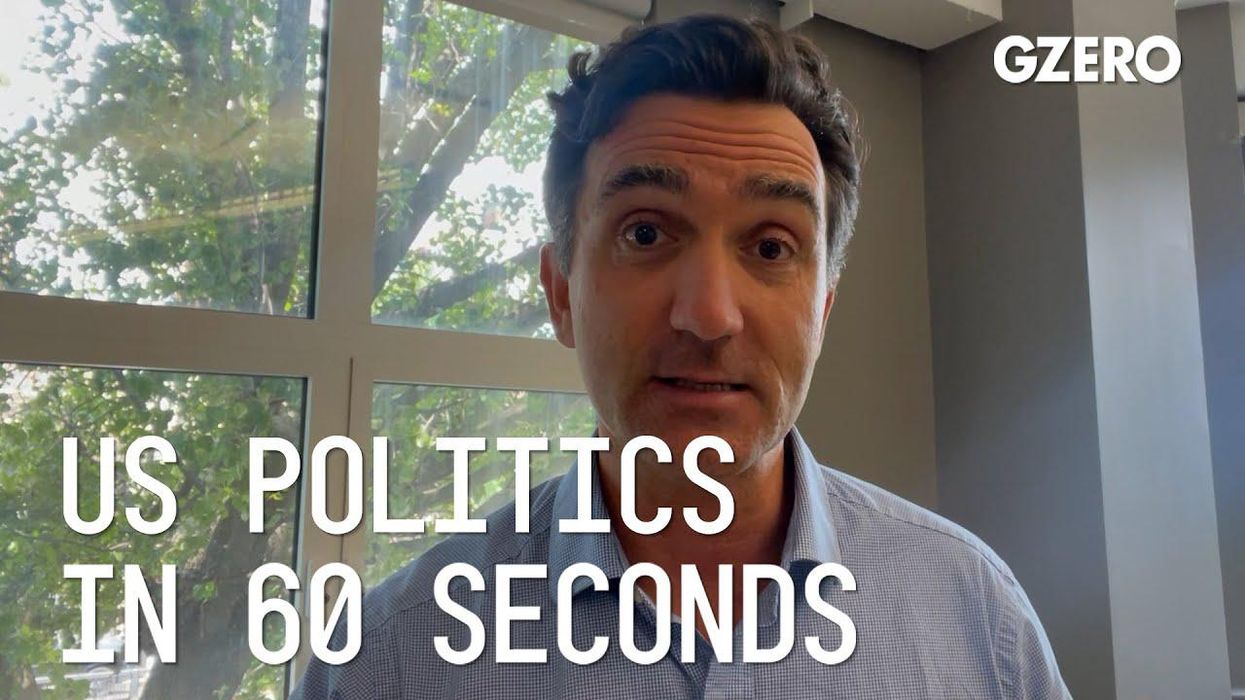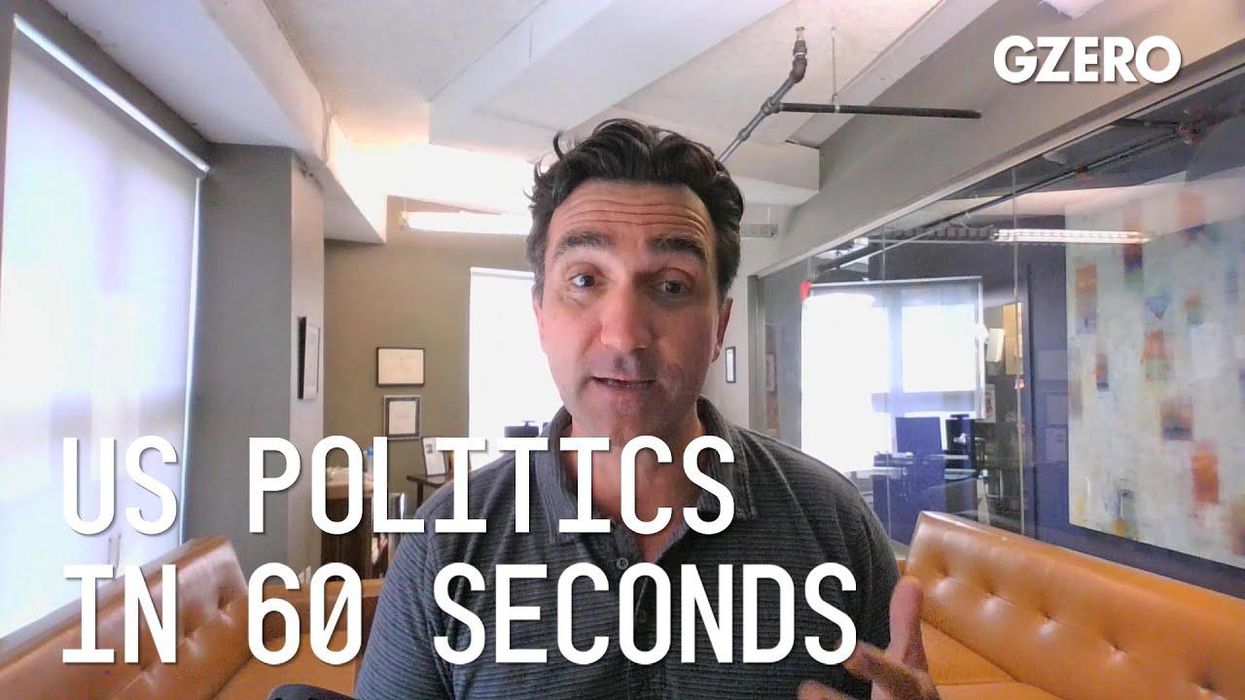VIDEOSGZERO World with Ian BremmerQuick TakePUPPET REGIMEIan ExplainsGZERO ReportsAsk IanGlobal Stage
Site Navigation
Search
Human content,
AI powered search.
Latest Stories
Start your day right!
Get latest updates and insights delivered to your inbox.
US Politics In 60 Seconds
Get insights on the latest news in US politics from Jon Lieber, head of Eurasia Group's coverage of political and policy developments in Washington
Presented by
Jon Lieber, head of Eurasia Group's coverage of political and policy developments in Washington, DC shares his perspective on US politics.
How is the US policy towards Ukraine shifting?
With Republicans well positioned to take control of the House of Representatives next year, the next likely Speaker of the House, Kevin McCarthy, recently warned that the US would no longer give a "blank check" to Ukraine when Republicans were in charge. This has lots of folks worried about a softening commitment to financing the Ukrainian defense against the Russian invasion.
But should they be? The United States has committed over $60 billion in aid so far to fund the military effort, humanitarian aid, and to directly finance the Ukrainian government. That is a lot of money that passed very quickly with little debate in the US, though it is broadly in line with US public opinion. A poll from the Chicago Council on Global Affairs found that 80% of Americans continue to support US economic and diplomatic sanctions against Russia.
Over 70% support providing additional arms and military supplies to Ukraine, as well as economic assistance. But as the war is dragged on, a debate in Washington about this money and the overall US strategy is starting to grow.
Republicans so far have been more outspoken in criticizing the funds. The criticisms have ranged from Senator Rand Paul trying to create an inspector general to oversee where the funds are going to Ohio Senate candidate and likely future senator JD Vance saying he didn't really care about Ukraine and other Republicans openly worrying about being baited into a nuclear exchange with Russia.
A group of 30 House progressives recently sent a letter questioning the administration's open ended policy towards Ukraine. Turns out the letter was over three months old and was quickly disavowed by their signatories who were criticized from the left for helping the Russian cause. But this does raise a question: what is the Biden administration's endgame in Ukraine? So far, the US commitment has been seemingly limitless with the US providing material and intelligence support to give the Ukrainians an advantage when facing an underwhelming Russian army.
White House Spokesman, John Kirby, recently said that it would be up to the Ukrainians to decide what success looks like and when to negotiate. But Kirby doesn't get to decide how much money to send to the Ukrainians. Congress does. The Chicago poll found that Americans were split on the degree of US commitment, with 60% saying that Americans should support Ukraine "for as long as it takes", while 40% want the US to settle for peace as soon as possible.
For its part, the White House is preparing for the increased resistance to open ended Ukraine aid next year by considering asking Congress to send an enormous additional appropriation of money, $50 billion, potentially in the lame duck session of Congress before the new crop of Republicans come in.
But the White House also does not have a good public answer for how it will respond should the war escalate further. As the Russian military has faced setbacks, the Ukrainians could potentially be emboldened to try and retake Crimea, which was annexed by the Russians in 2014 and would be seen as a major escalation by Moscow that the US would probably not support. And the Russians could be emboldened to take a step that has never happened before, which is using a tactical nuclear weapon on the battlefield, a move that would be universally condemned by other countries, but would essentially force the US to respond and probably get involved directly militarily.
No matter how you feel about the importance of Ukraine to American voters, these are legitimate questions that should be a matter of public debate. A debate has not happened so far as the US has aggressively backed Ukraine.
Keep reading...Show less
More from US Politics In 60 Seconds
How Biden’s presidency will be remembered
January 18, 2025
What Trump’s cabinet picks reveal so far
November 22, 2024
US election: GOP could win a Trump-led sweep
November 06, 2024
2024 US election: What to look out for
November 04, 2024
Defining Kamala Harris at DNC 2024
August 23, 2024
DNC unites around 3 key themes
August 22, 2024
Why Project 2025 is getting so much attention at the DNC
August 21, 2024
DNC Night 2: Obama set to rally support for Harris
August 20, 2024
What Tim Walz adds to Kamala Harris' campaign
August 06, 2024
With Biden out, can Kamala Harris defeat Trump?
July 21, 2024
RNC shows how Trump has transformed GOP
July 19, 2024
Trump's pick for VP: JD Vance
July 15, 2024
Will the Trump attack shift GOP approach at the RNC?
July 15, 2024
Why replacing Biden would be a challenge
June 28, 2024
Trump's VP pick: The short list
June 21, 2024
Trump has been found guilty. Will voters care?
May 30, 2024
Campus protests spill over into US political sphere
May 02, 2024
Trump's NYC hush-money trial: What to watch for
April 11, 2024
How Trump's money problems could affect the 2024 election
March 29, 2024
Biden's vigorous SOTU speech aims to prove doubters wrong
March 08, 2024
Why Mitch McConnell is stepping down
February 28, 2024
3 themes to watch as US election season begins
January 10, 2024
Ballot battle: Colorado vs Trump
December 20, 2023
What Democrats and Republicans have in common this Thanksgiving
November 22, 2023
Biden's 2024 prospects slip even as Democrats make gains
November 09, 2023
Meet Mike Johnson, US House Speaker & DC's most Googled person
October 26, 2023
Is Biden's embrace of Israel a political liability for him?
October 20, 2023
What's next after Kevin McCarthy's ouster?
October 03, 2023
The implications of Senator Feinstein's passing
September 29, 2023
US government shutdown: No end in sight
September 28, 2023
Mitt Romney will be defined by opposing Trump
September 14, 2023
No-show Trump wins first GOP debate
August 24, 2023
Trump skips debate
August 22, 2023
Will Trump's indictment in Georgia do him in?
August 16, 2023
Trump's uncertain future amid new indictments
July 28, 2023
Hunter Biden's legal issues are an opportunity for GOP
July 27, 2023
Threads, Twitter, & the 2024 US election
July 11, 2023
Why Mexico is a key issue in the 2024 US election
June 29, 2023
Timing on Trump's federal trial has huge implications
June 09, 2023
Biden & McCarthy both win in debt ceiling showdown
June 02, 2023
DeSantis' 2024 strategy: dominate the internet
May 24, 2023
Debt ceiling deal: long way to go in little time
May 18, 2023
2024 elections: Another likely Biden v Trump extravaganza
April 26, 2023
Subsidy game could hurt Canada-US relations
April 03, 2023
Hugely popular TikTok unlikely to be banned by US Congress
March 25, 2023
SVB political fallout ... not as dramatic as you think
March 16, 2023
Biden shifting to center ahead of 2024 reelection bid
March 08, 2023
Nikki Haley's in, but GOP primary remains Trump/DeSantis showdown
February 15, 2023
State of the Union a Biden 2024 campaign preview
February 08, 2023
Biden's "mini" document scandal could hurt his position with Dems
January 27, 2023
GOP partisanship could trigger first-ever US default
January 19, 2023
Five concessions McCarthy made to become House speaker
January 12, 2023
Speaker vote mess shows how ungovernable US House is
January 05, 2023
Zelensky tells Congress US aid is only path to war resolution
December 22, 2022
Zelensky in Washington for arms & aid, not just symbolic support
December 21, 2022
Independent Kyrsten Sinema won't change the US Senate
December 09, 2022
Warnock's Georgia victory: Dems control every Senate Committee
December 07, 2022
US Dems and GOP can be thankful this Thanksgiving
November 23, 2022
Will Trump’s 2024 candidacy sink Republicans?
November 16, 2022
GOP underperforms and Dems surprise in US midterms
November 09, 2022
US voters think GOP can fix the economy, but can they? Not likely
November 01, 2022
Reading the US midterm election tea leaves
October 18, 2022
Will US Congress change Social Security?
October 13, 2022
GOP wants immigration front and center in midterms
September 23, 2022
Have Republicans ruined their chances of taking the Senate?
September 14, 2022
NatCon 2022: Conservatives rethink foundations of the American right
September 13, 2022
Will the DOJ charge Trump after Mar-a-Lago raid?
August 31, 2022
Trump Mar-a-Lago affidavit: who accessed top secret documents?
August 26, 2022
$10,000 in student loan forgiveness: what's the point?
August 24, 2022
Closing tax loopholes: How US Congress will fund spending bill
August 05, 2022
Are we in a recession?
July 27, 2022
Climate emergency: limited Biden executive power
July 21, 2022
Are US politicians too old?
July 13, 2022
GOP battle with Big Tech reaches the Supreme Court
June 02, 2022
GZERO Series
GZERO Daily: our free newsletter about global politics
Keep up with what’s going on around the world - and why it matters.
